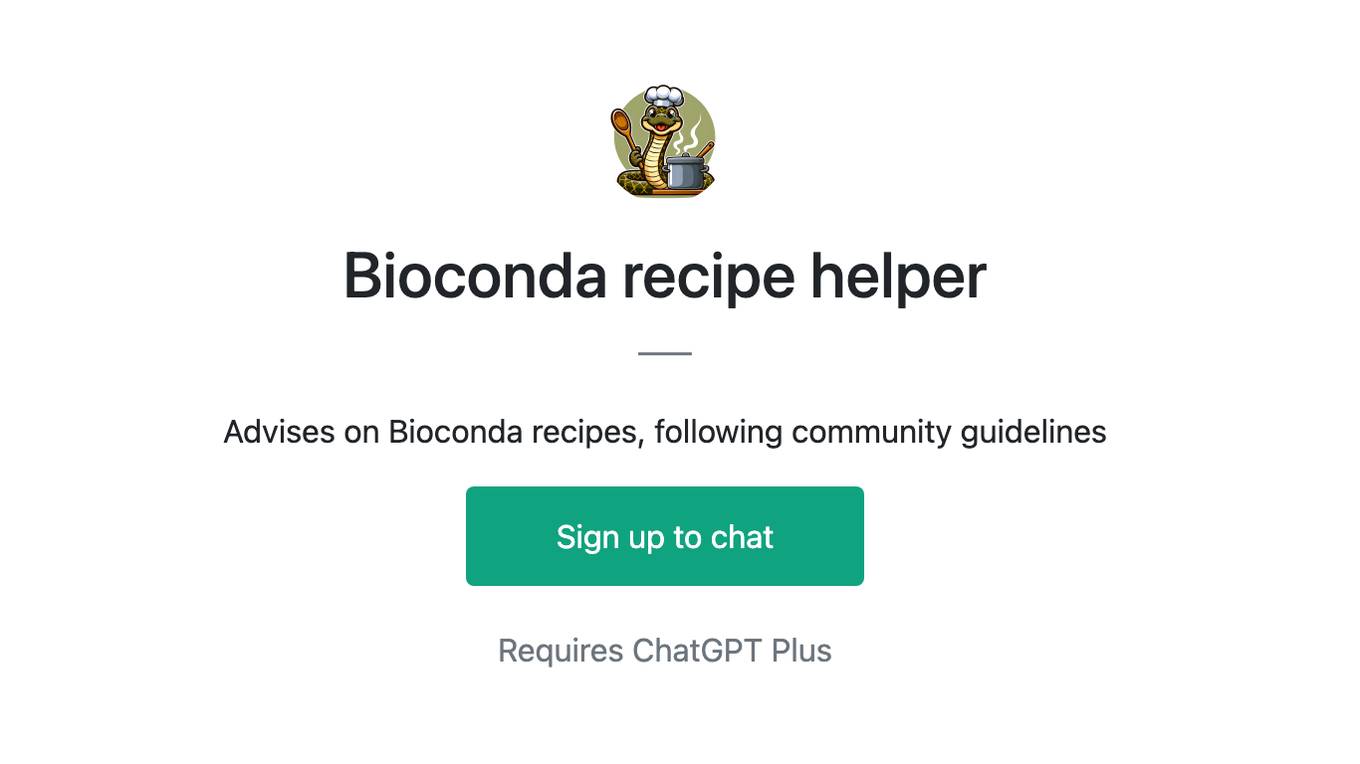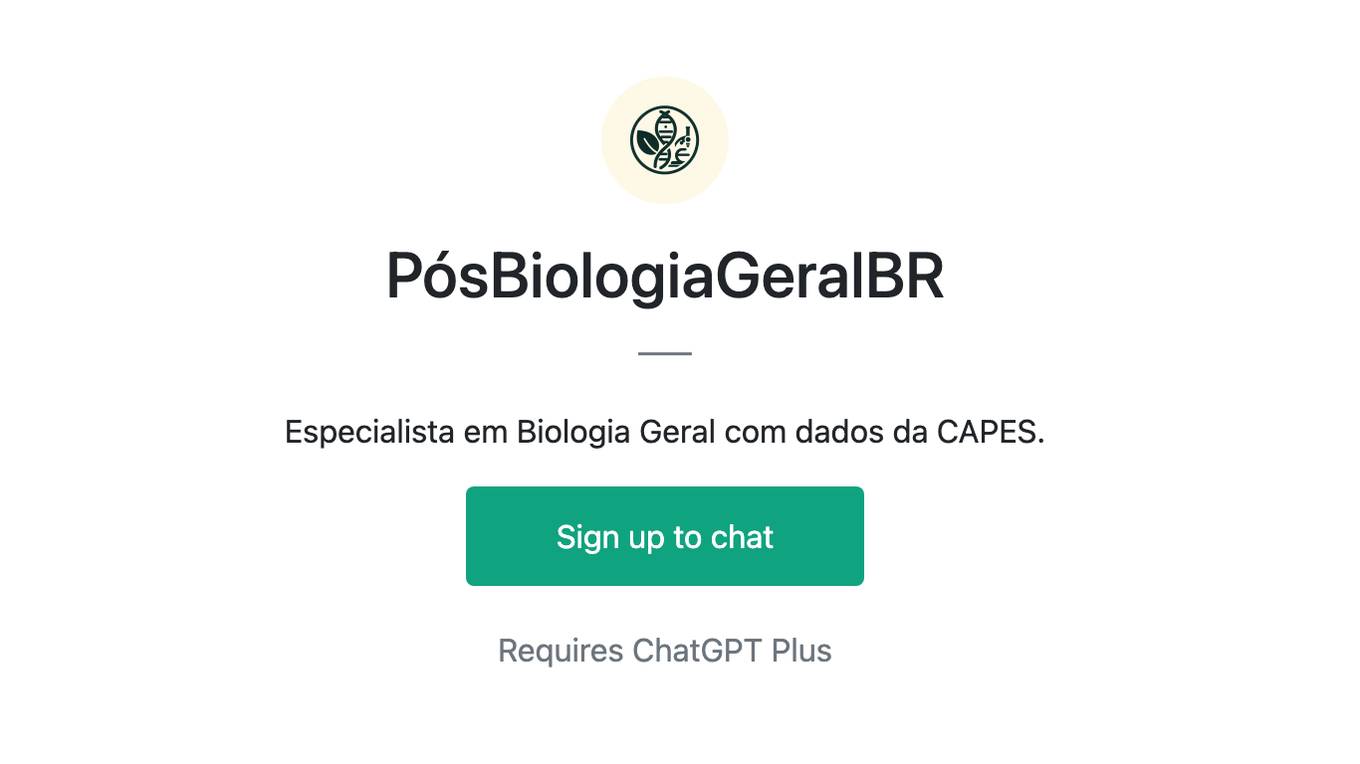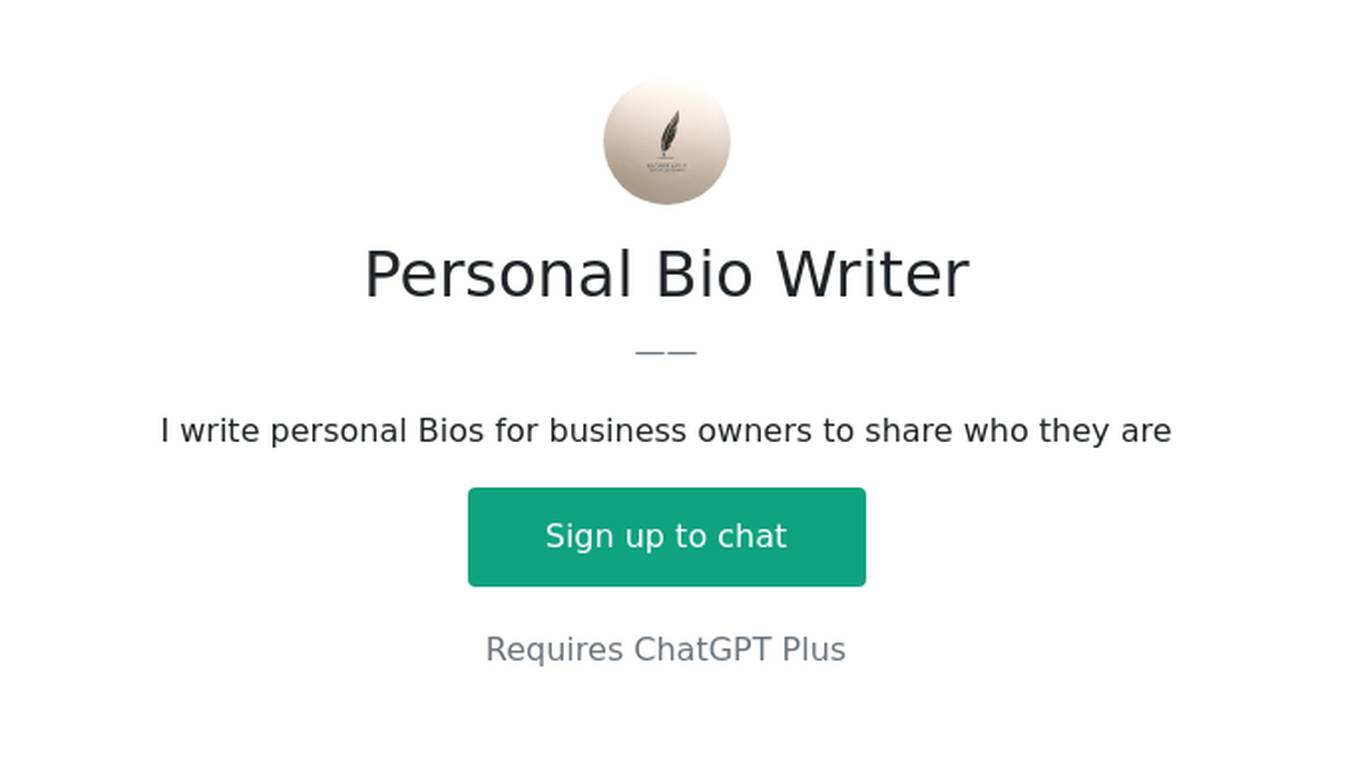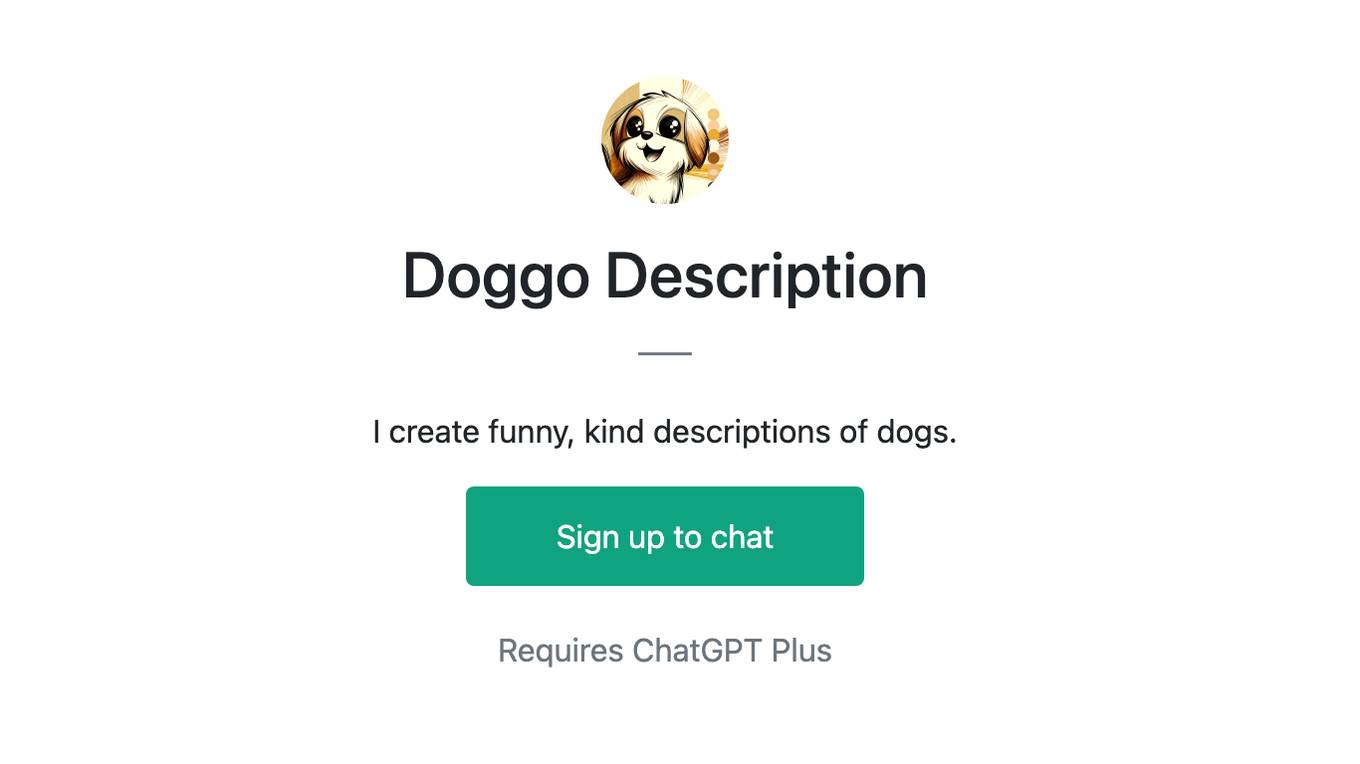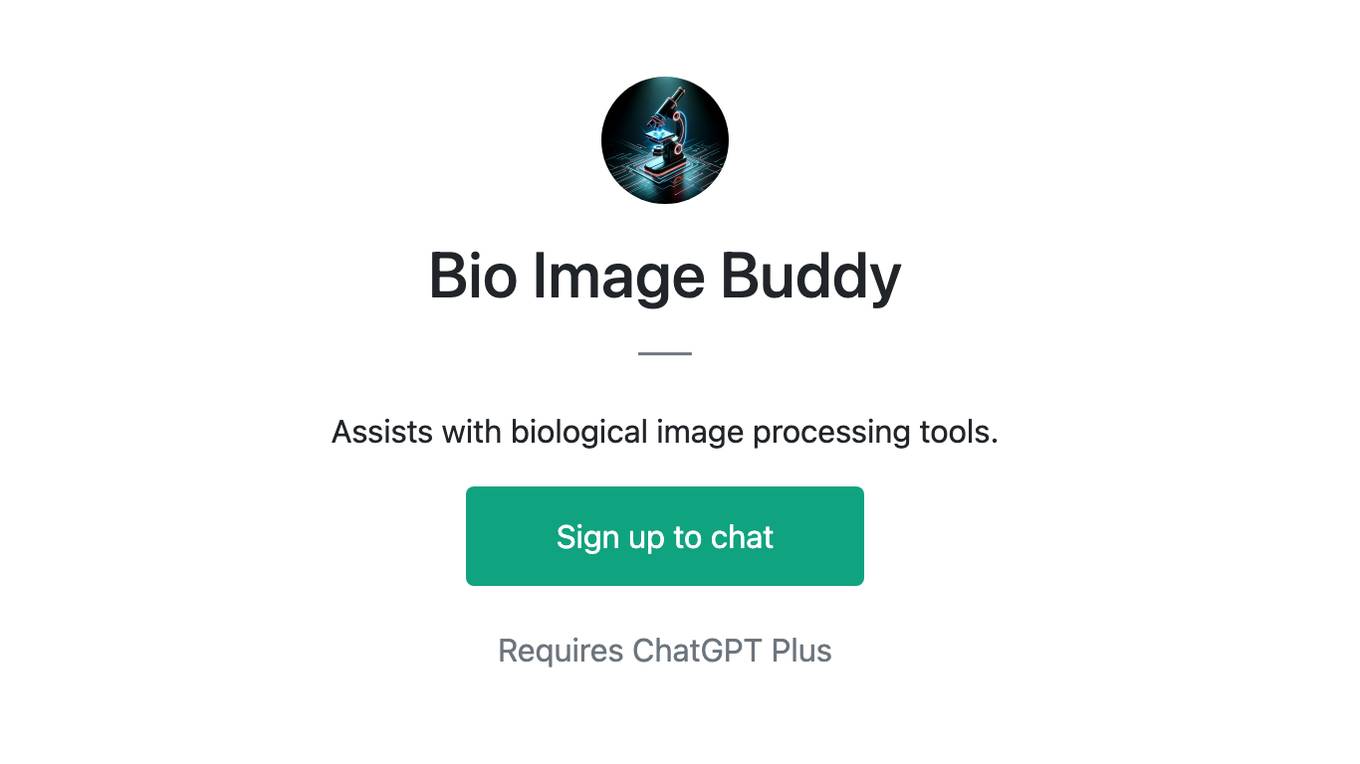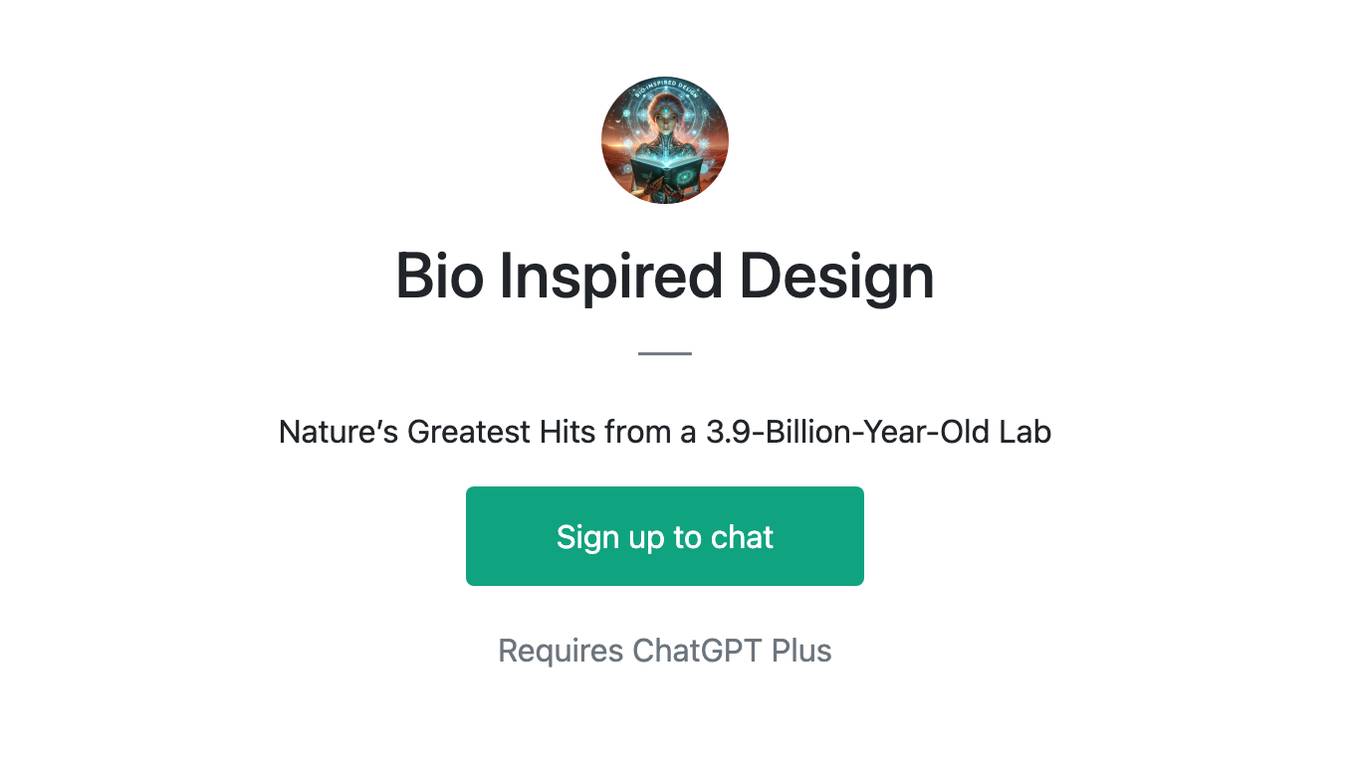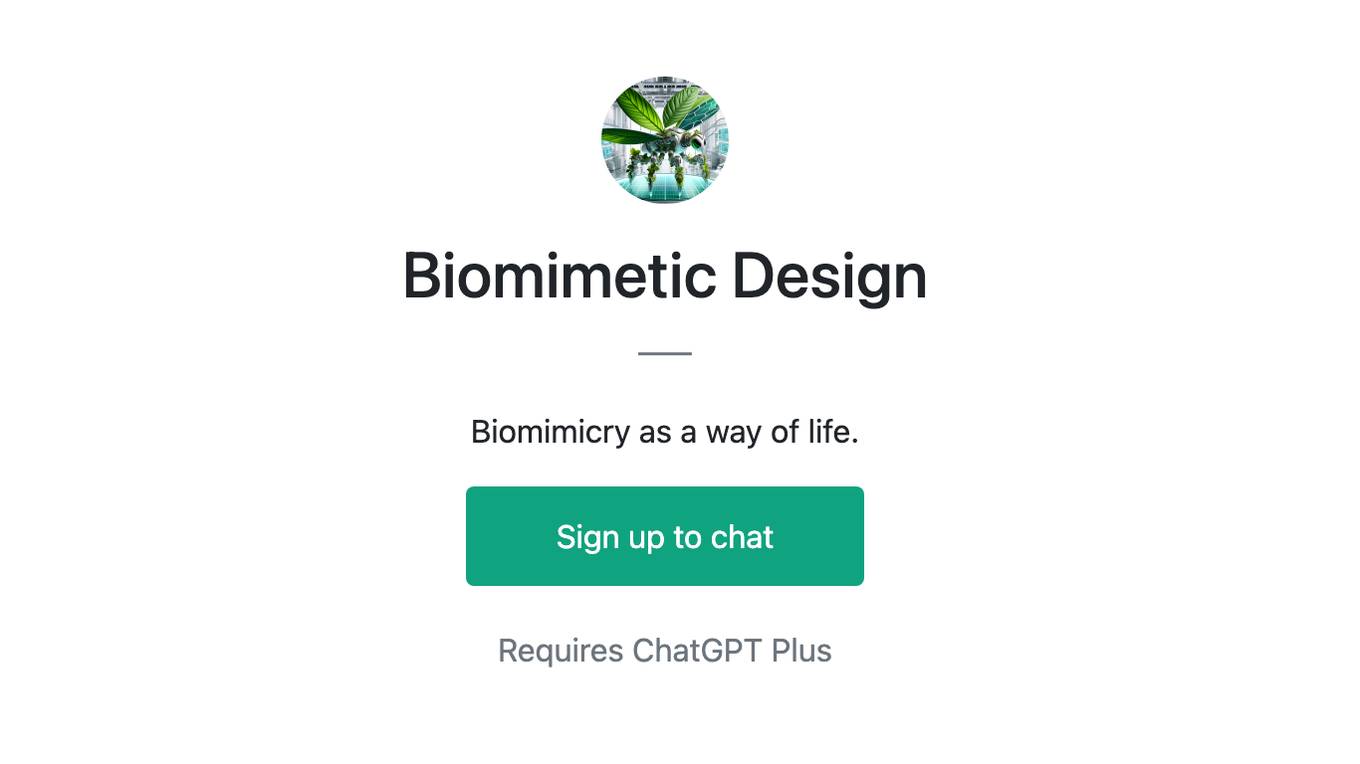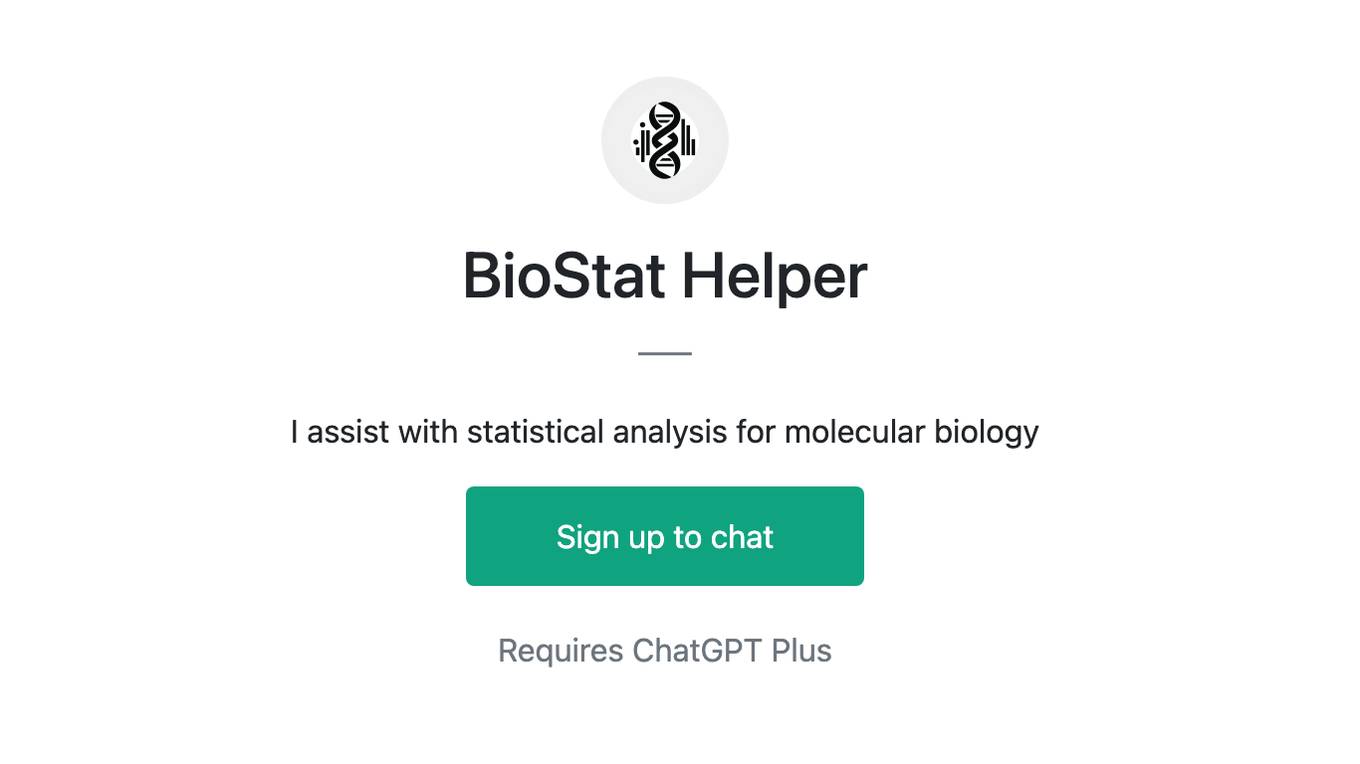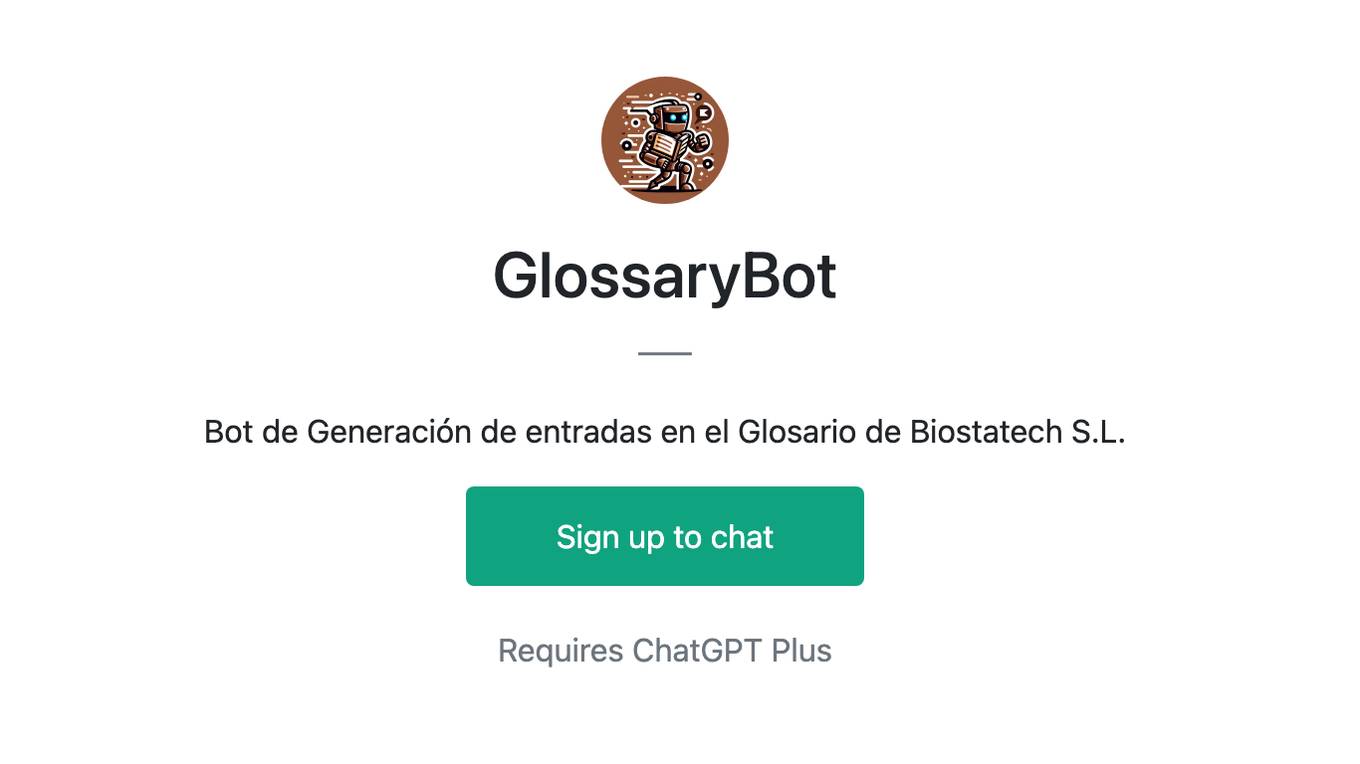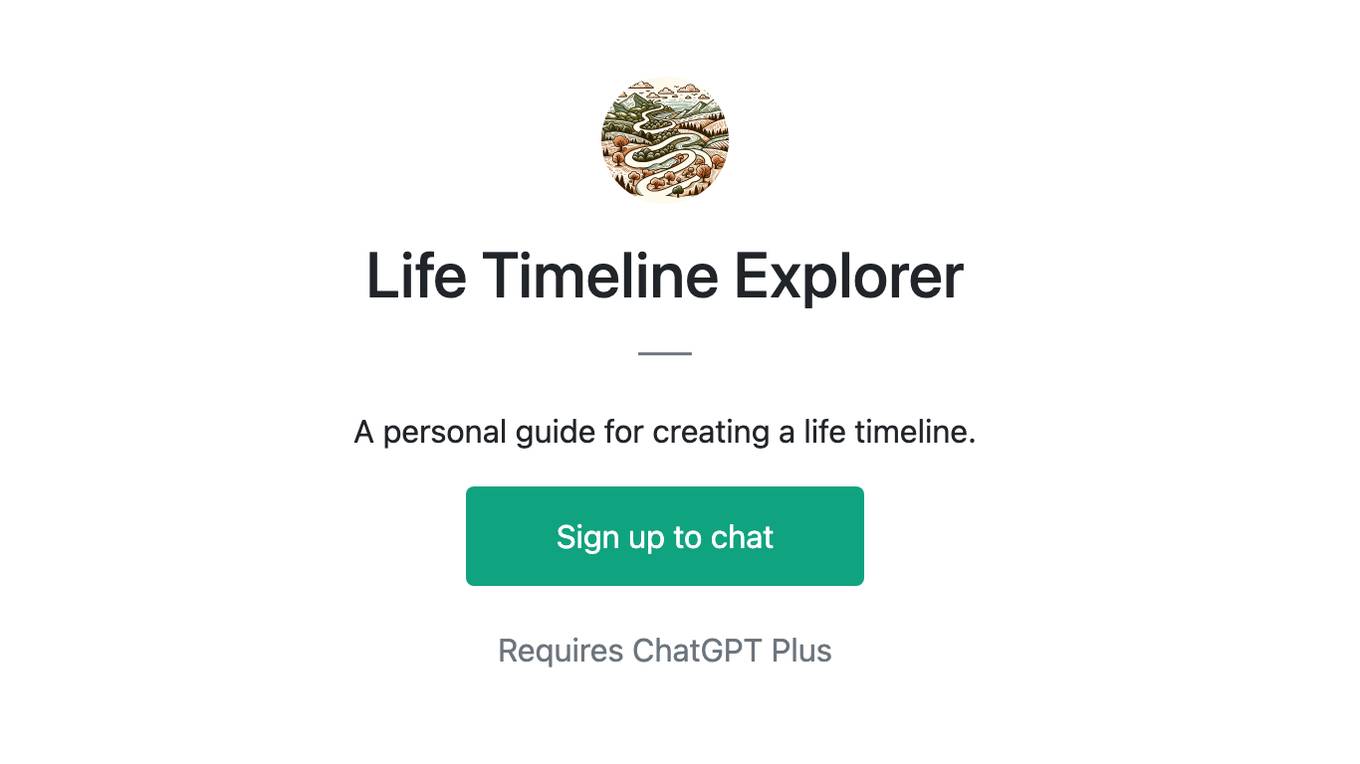Best AI tools for< Create Bio >
20 - AI tool Sites
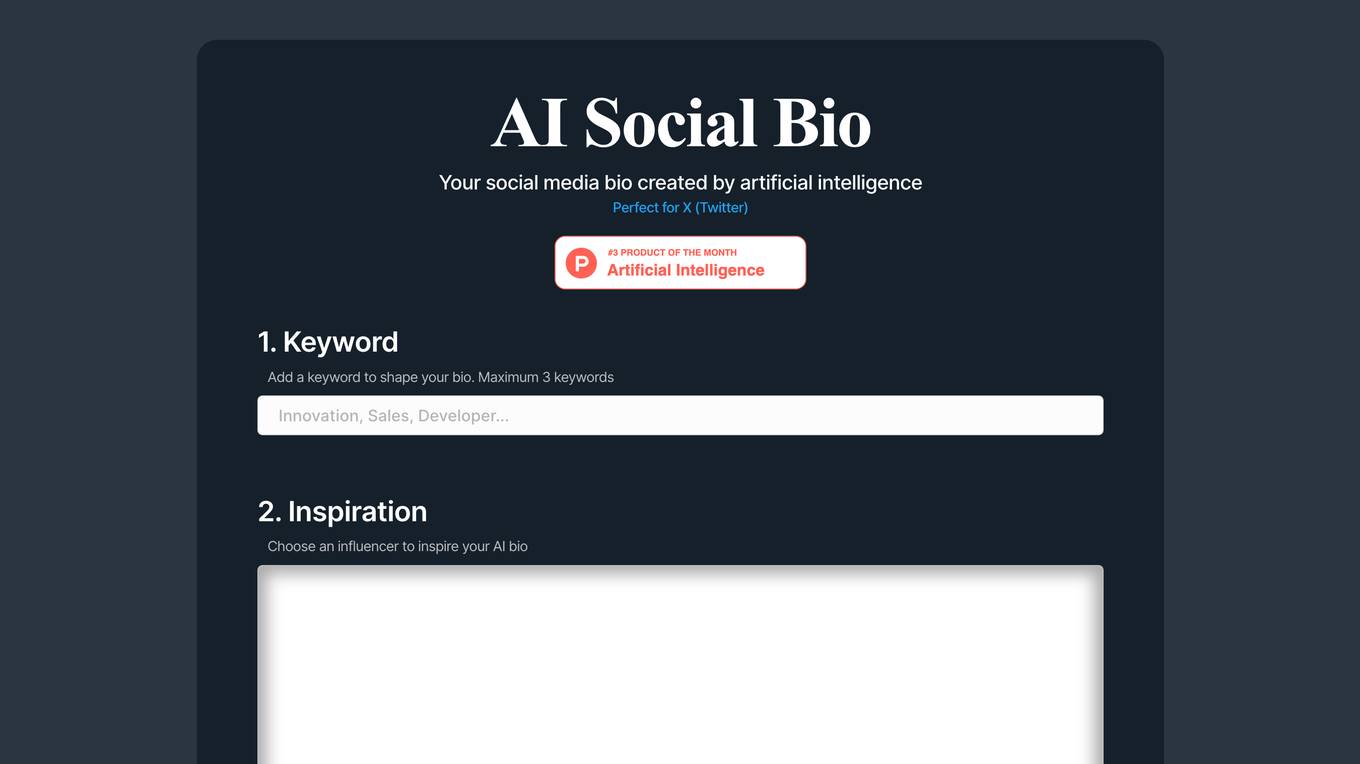
AI Social Bio
AI Social Bio is an AI tool that generates social media bios using artificial intelligence. Users can add keywords, choose influencers for inspiration, and generate personalized bios in seconds. The app was created by two Indie Makers and offers a quick and easy way to create engaging social media profiles. AI Social Bio does not save user data and provides unlimited usage within fair use limits. It can also be used as a lead generator for businesses.
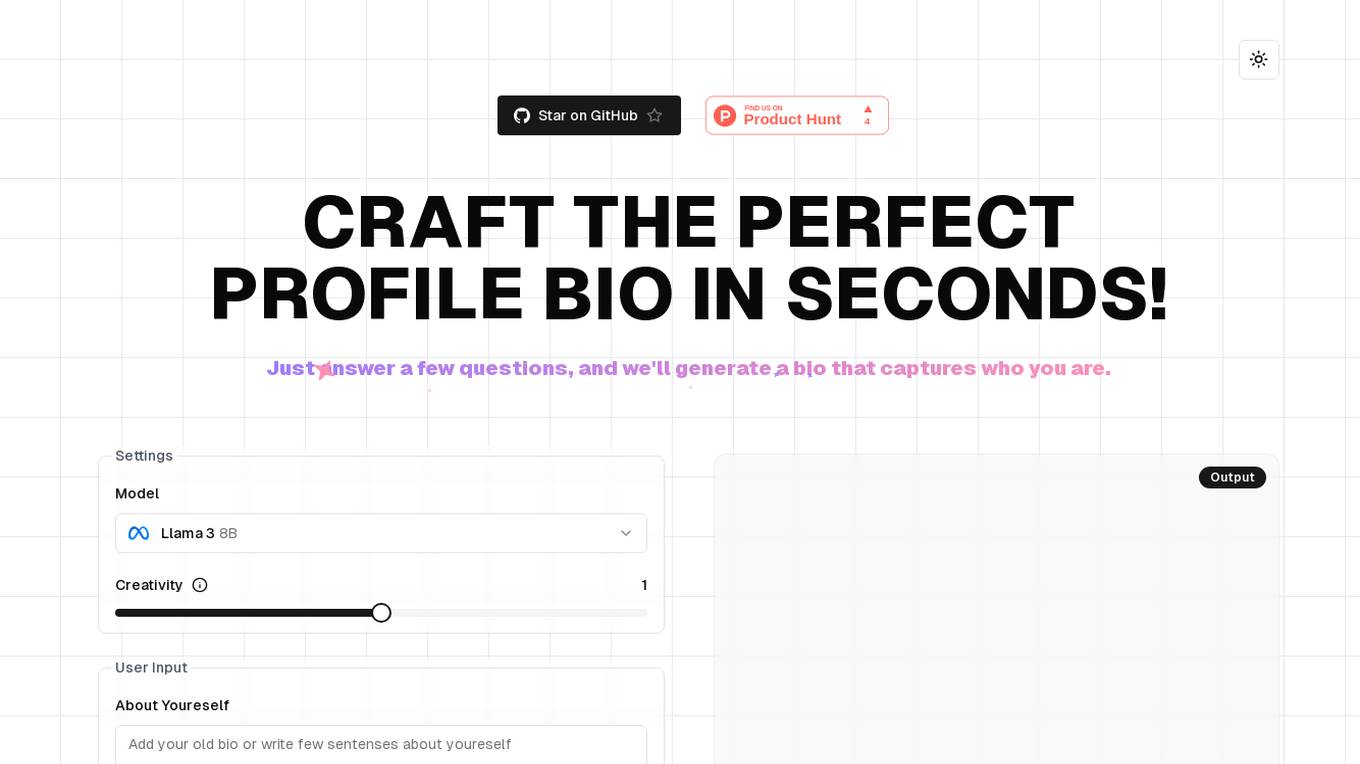
Qick Bio
Qick Bio is an AI-powered tool designed to help users craft the perfect profile bio in seconds. By answering a few questions, the tool generates a bio that accurately captures the essence of who you are. With features like model creativity, user input, tone selection, emoji addition, and instant bio generation, Qick Bio simplifies the process of creating a compelling bio for various online platforms.
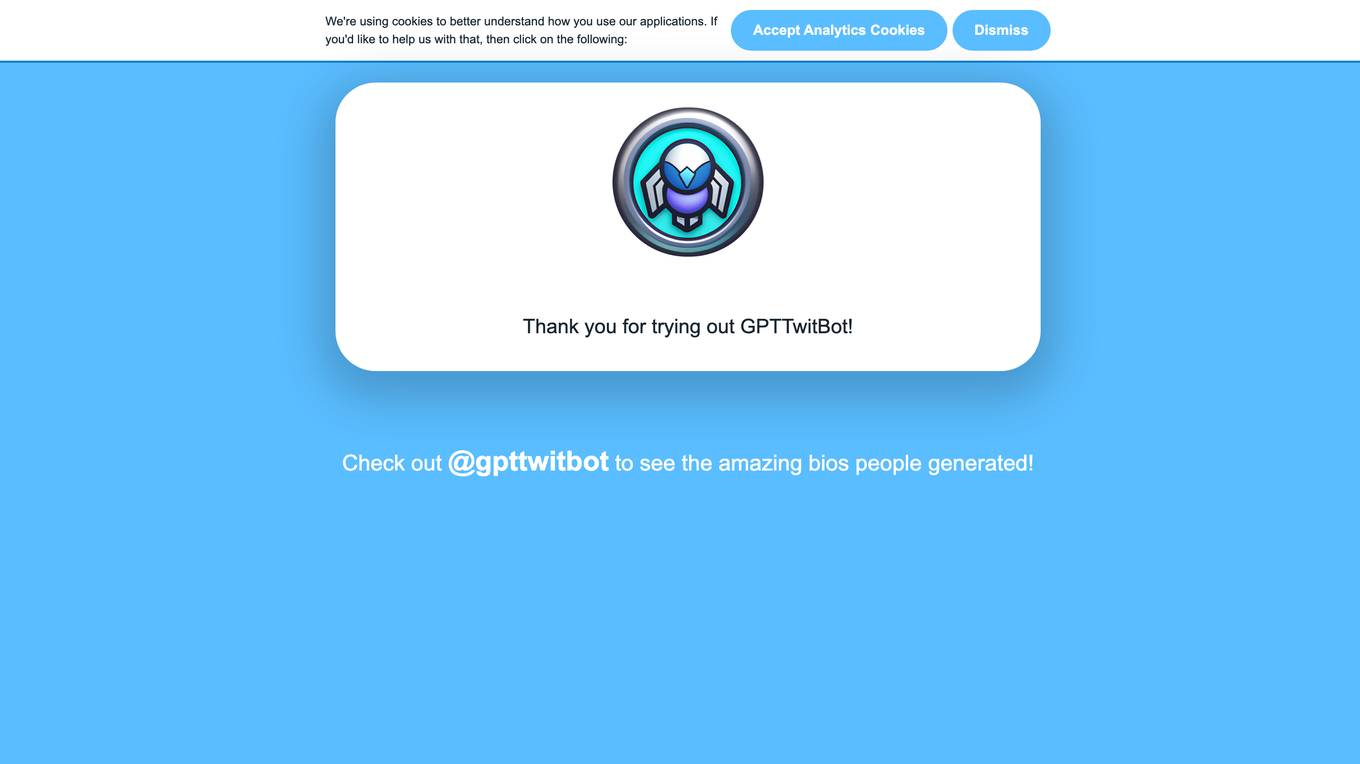
GPT Twitter Bot
GPT Twitter Bot is an AI tool that generates bios for Twitter profiles using GPT-3 technology. It utilizes natural language processing to create engaging and personalized bios for users. The tool aims to assist individuals in enhancing their Twitter profiles by providing unique and creative content. Users can simply input some information about themselves, and the bot will generate a bio based on that input. GPT Twitter Bot is designed to streamline the process of creating compelling Twitter bios, saving users time and effort.
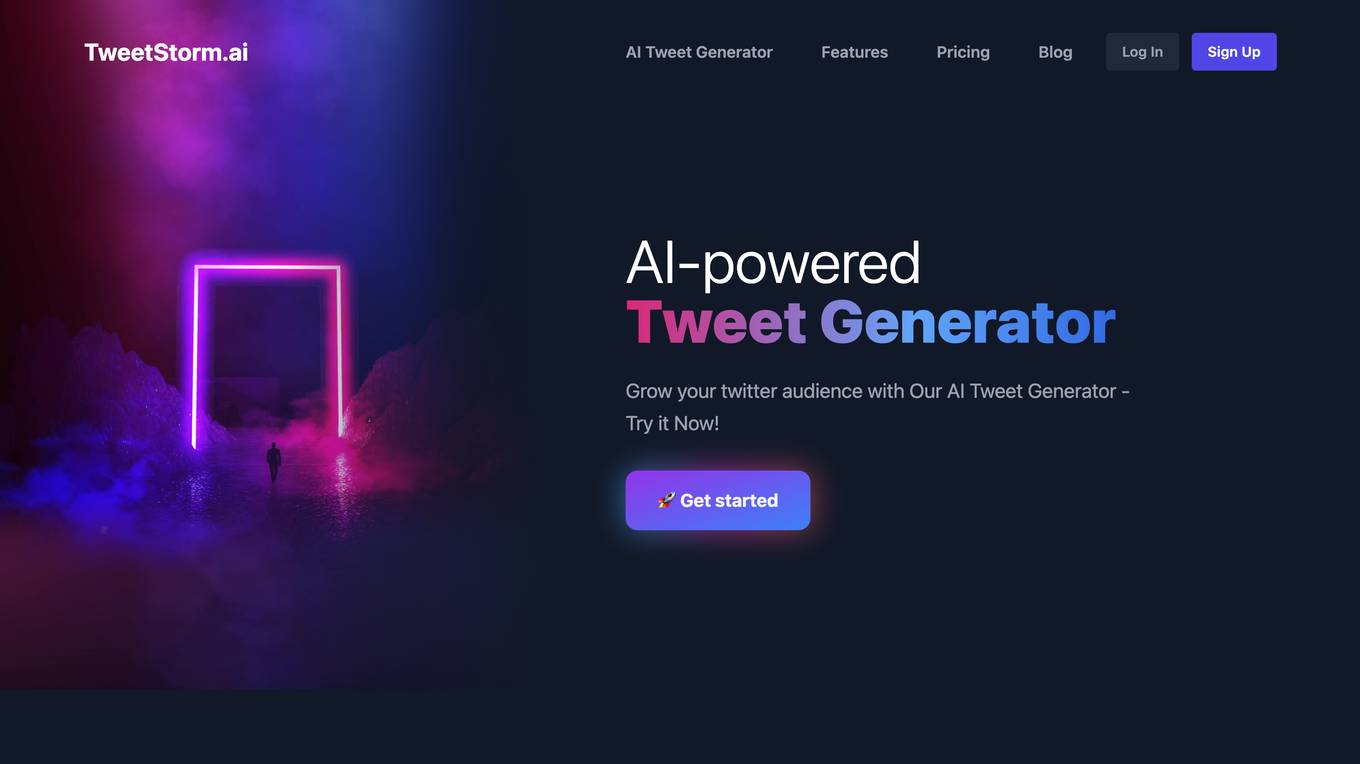
TweetStorm.ai
TweetStorm.ai is an AI-powered tweet generator that helps you create engaging and effective tweets. With TweetStorm.ai, you can generate tweets that are tailored to your specific audience and goals. TweetStorm.ai offers a variety of features to help you create the perfect tweet, including AI-generated content, hashtag suggestions, and unique bio creation.
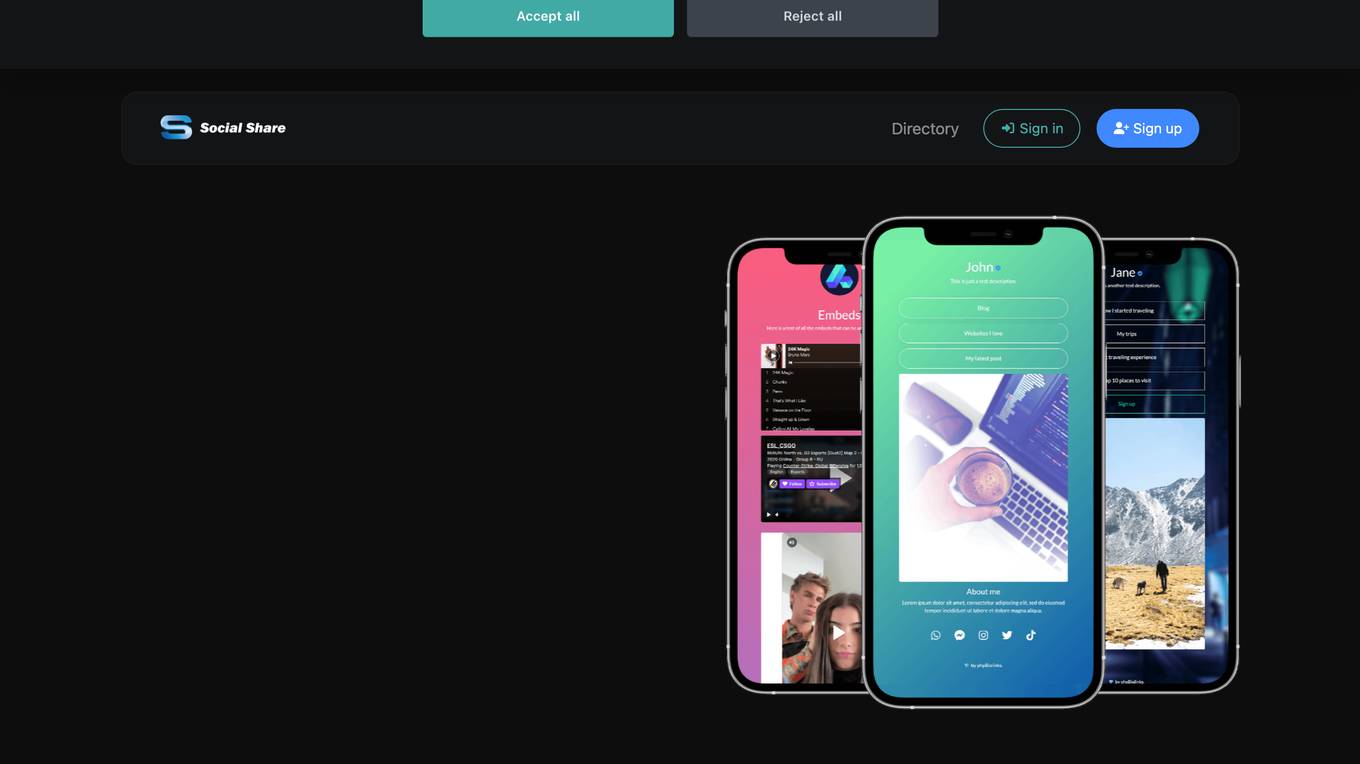
Social Share
Social Share is an all-in-one social tool that allows users to create bio link pages, shorten links, generate QR codes, create vCard links, and generate file links. It is a comprehensive platform that provides users with everything they need to manage their social media presence and online marketing efforts.
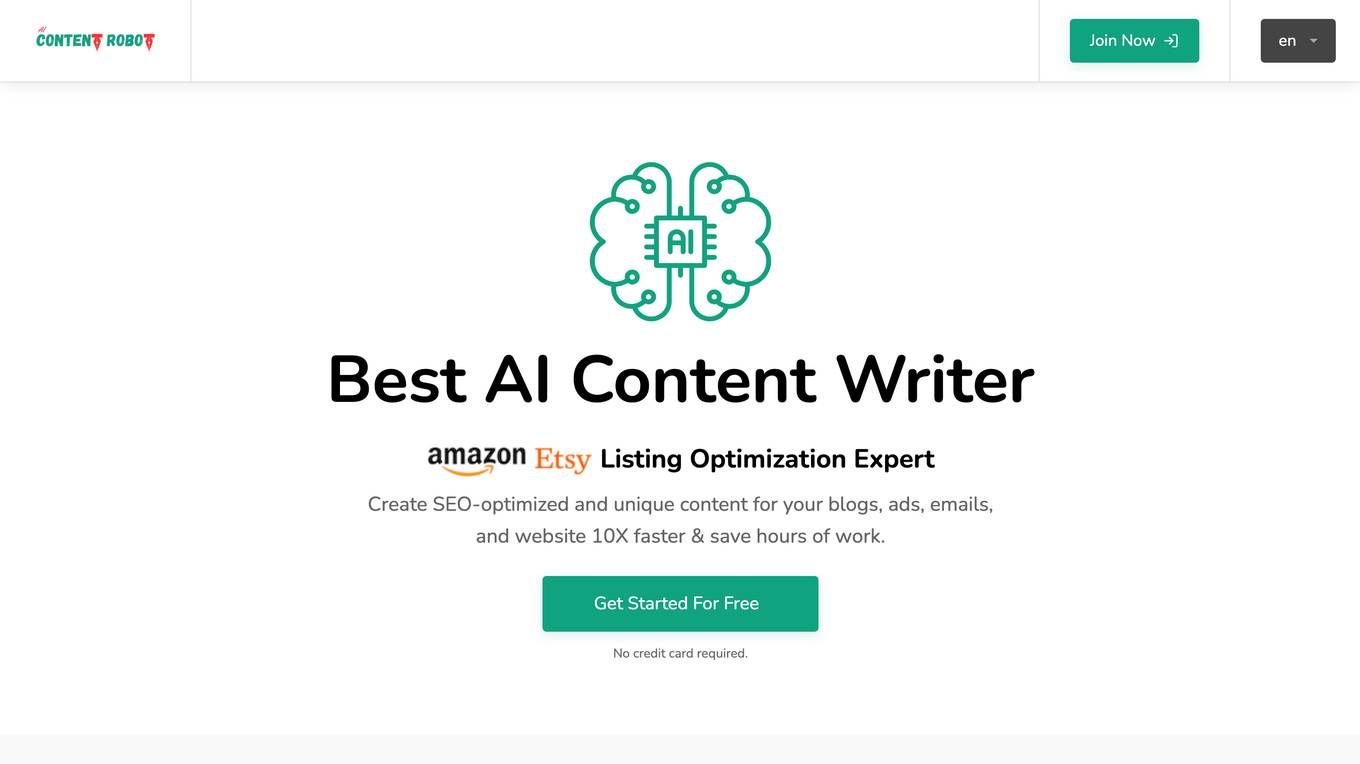
Content Robot
Content Robot is an AI-powered content and image generator that helps users create high-quality, SEO-optimized content for their websites, blogs, and social media. The tool offers a wide range of templates and features to help users generate unique and engaging content quickly and easily. Content Robot is also affordable and easy to use, making it a great option for businesses of all sizes.

BioGen
The website is currently under development and will soon launch an improved bio generator. Users can expect an exciting new tool that will help generate biographies efficiently. Stay tuned for updates on this upcoming feature.

Bibit AI
Bibit AI is a real estate marketing AI designed to enhance the efficiency and effectiveness of real estate marketing and sales. It can help create listings, descriptions, and property content, and offers a host of other features. Bibit AI is the world's first AI for Real Estate. We are transforming the real estate industry by boosting efficiency and simplifying tasks like listing creation and content generation.
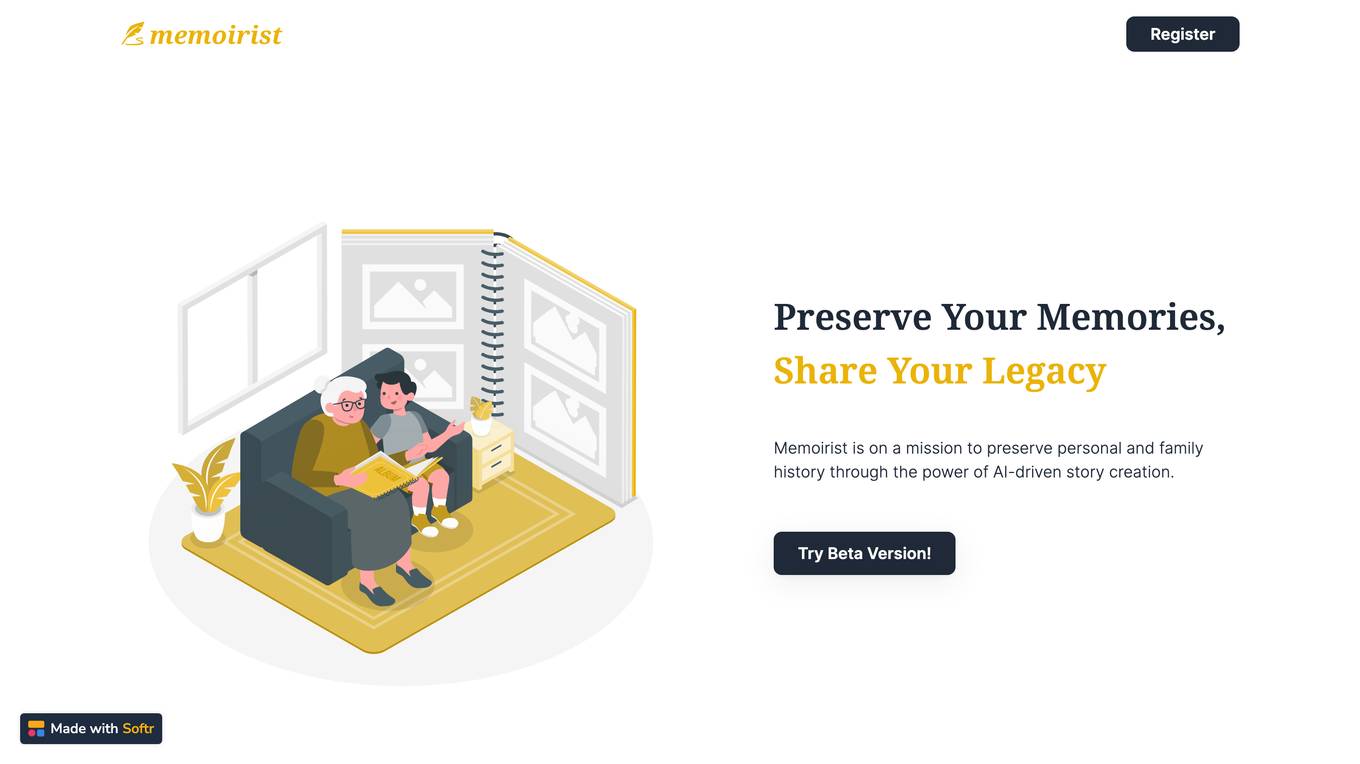
Memoirist
Memoirist is an AI-assisted service that helps users self-author heartfelt biographies and memoirs of their loved ones. The platform prompts users with expert questions to uncover deep and meaningful stories effortlessly, turning interviews into beautifully crafted memoirs. Memoirist handles the formatting and design, delivering a printed book straight to the user's door. The goal of Memoirist is to help families stay connected, preserve their history, and create lasting memories for themselves and future generations.
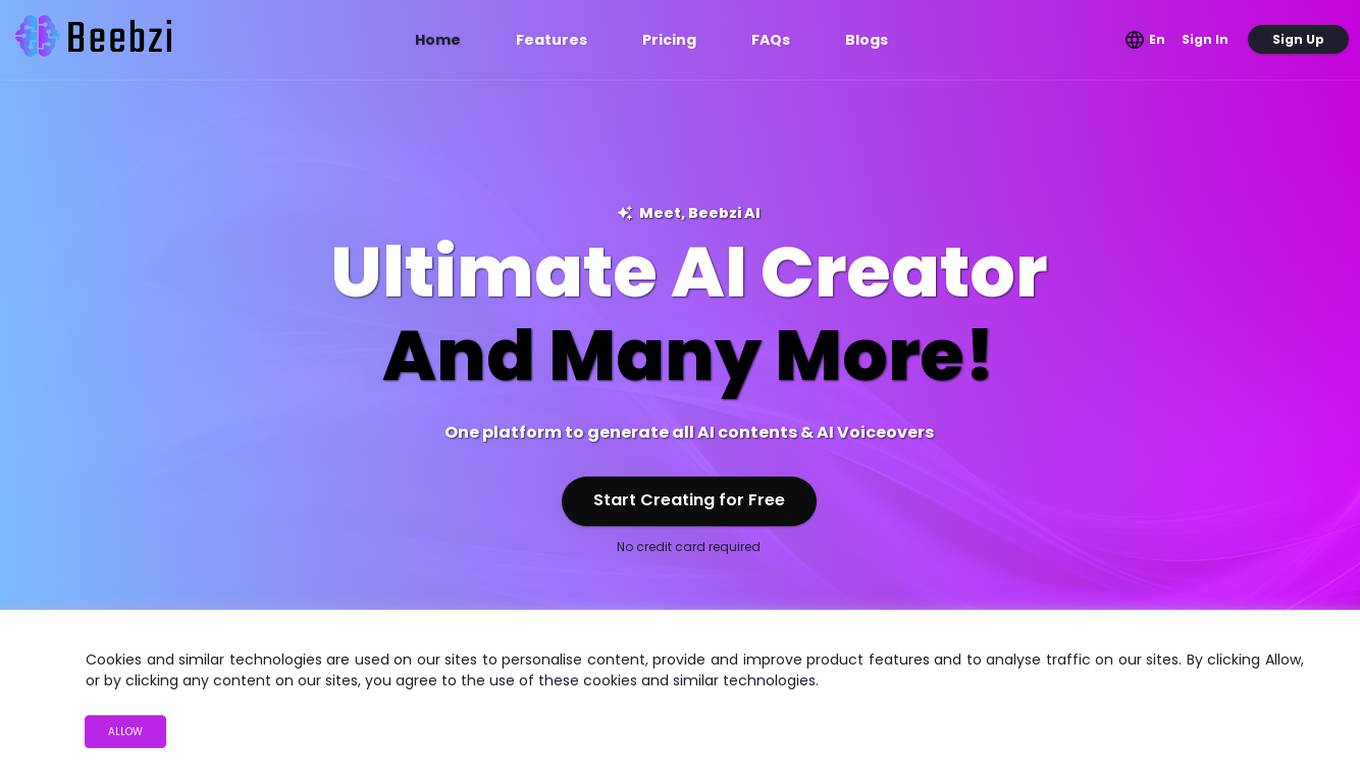
Beebzi.AI
Beebzi.AI is an all-in-one AI content creation platform that offers a wide array of tools for generating various types of content such as articles, blogs, emails, images, voiceovers, and more. The platform utilizes advanced AI technology and behavioral science to empower businesses and individuals in their marketing and sales endeavors. With features like AI Article Wizard, AI Room Designer, AI Landing Page Generator, and AI Code Generation, Beebzi.AI revolutionizes content creation by providing customizable templates, multiple language support, and real-time data insights. The platform also offers various subscription plans tailored for individual entrepreneurs, teams, and businesses, with flexible pricing models based on word count allocations. Beebzi.AI aims to streamline content creation processes, enhance productivity, and drive organic traffic through SEO-optimized content.
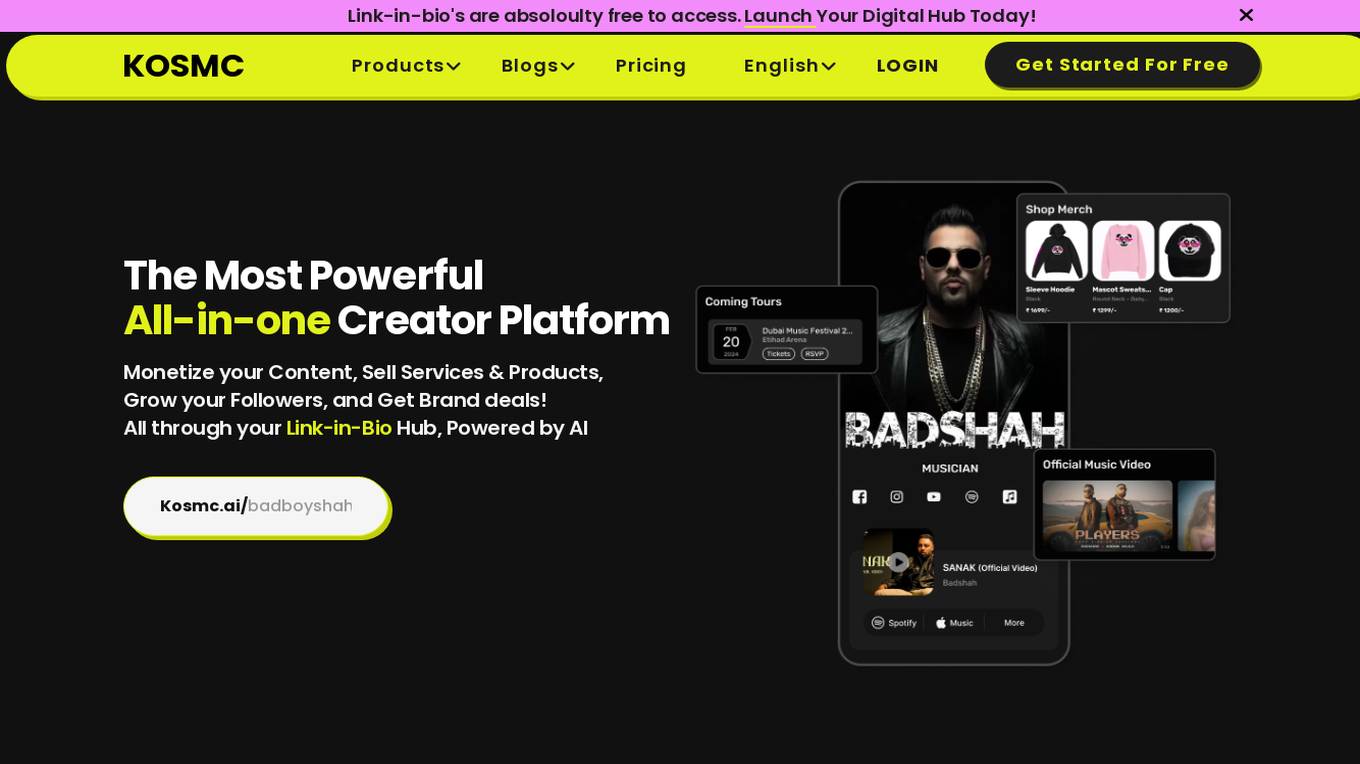
Kosmc
Kosmc is an all-in-one creator platform powered by AI, offering a comprehensive suite of tools for content creation, design, and development. With its AI-driven capabilities, Kosmc aims to streamline the creative process and empower users to bring their ideas to life efficiently. The platform provides intuitive features and functionalities that cater to various creative needs, making it a valuable resource for individuals and businesses looking to enhance their digital presence.
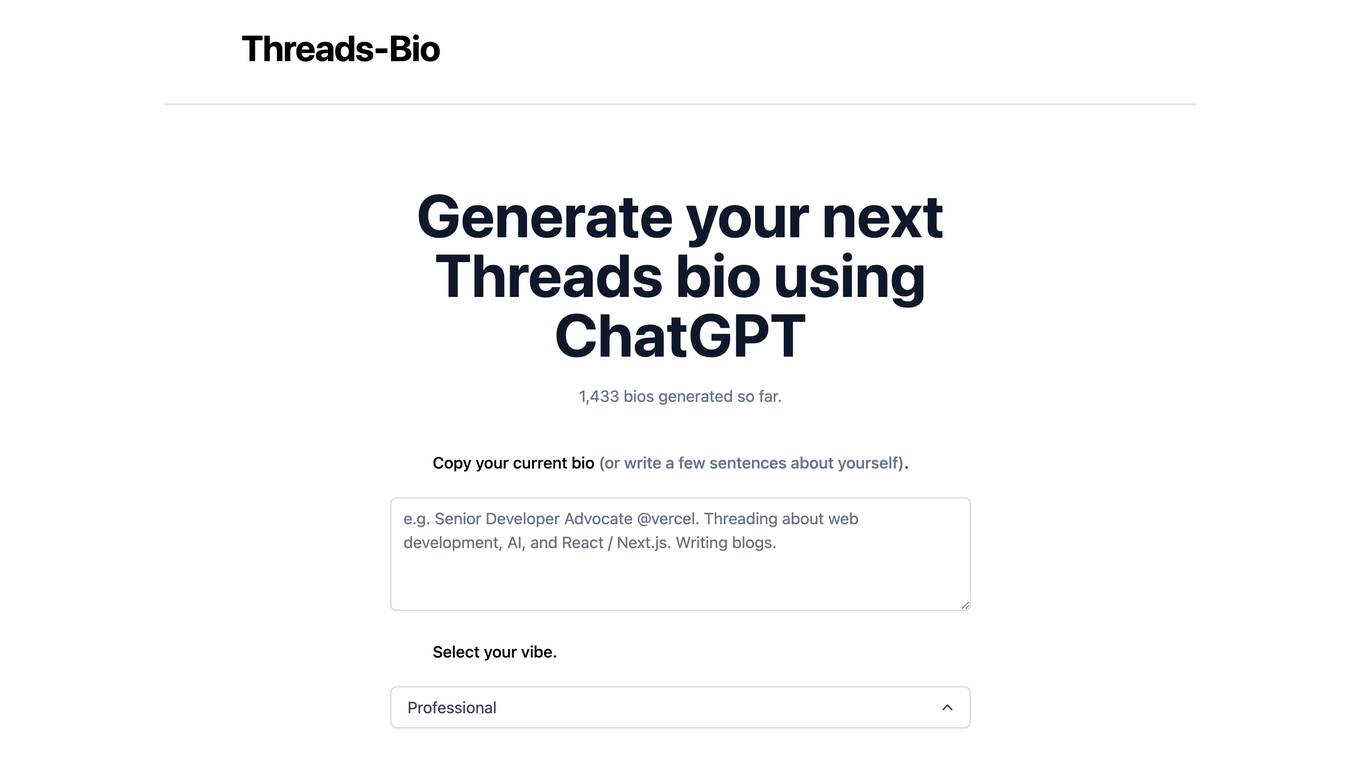
Threads Bio Generator
Threads Bio Generator is an AI tool that helps users create their next Threads bio using ChatGPT. With over 1,433 bios generated so far, users can copy their current bio or write a few sentences about themselves and select their vibe, whether professional or casual. The tool is powered by ChatGPT and Vercel Edge Functions, providing users with personalized and engaging bio content.
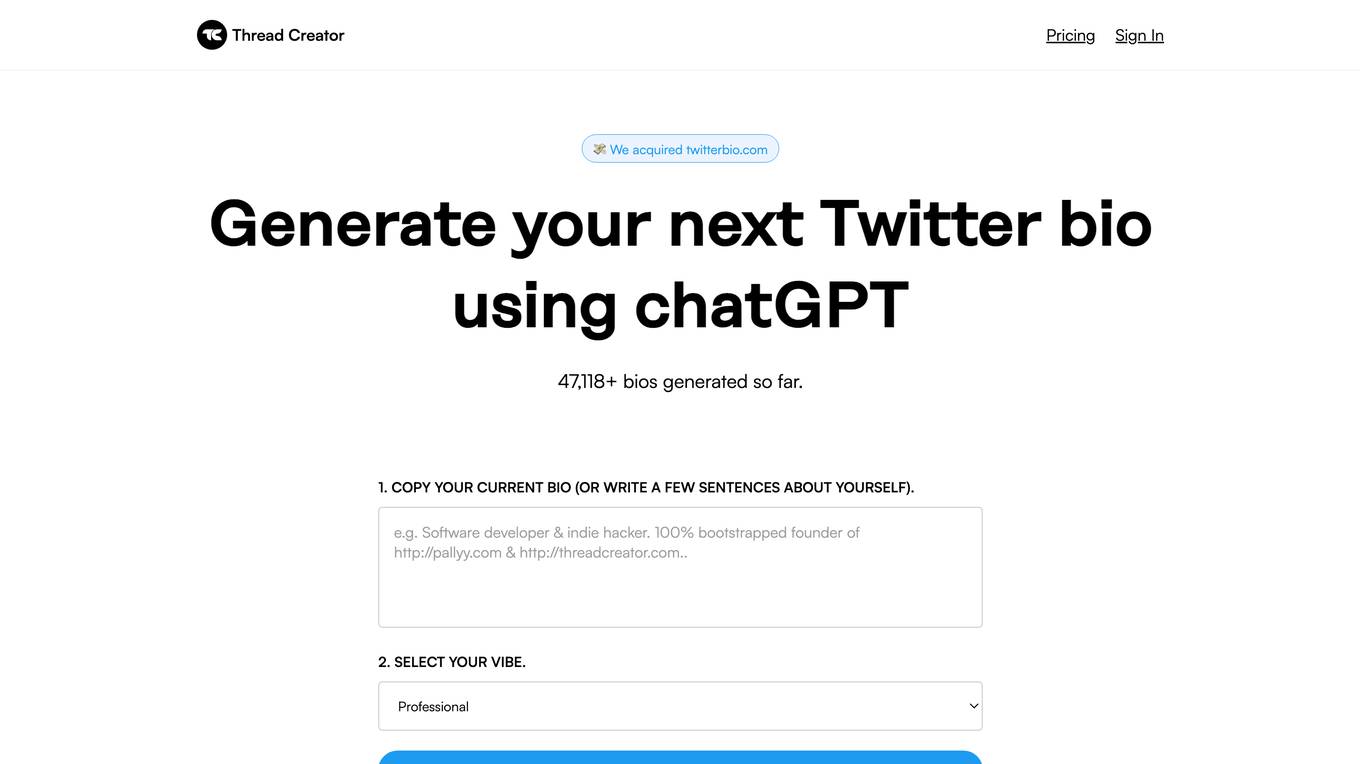
Twitter Bio Generator
Twitter Bio Generator is an AI-powered tool that helps you create a unique and engaging Twitter bio. With over 47,000 bios generated so far, it's the most popular Twitter bio generator on the web. Using Twitter Bio Generator is easy. Just copy and paste your current bio (or write a few sentences about yourself), select your vibe (professional, casual, or funny), and click the "Generate" button. Twitter Bio Generator will then generate a variety of bios for you to choose from. You can also use Twitter Bio Generator to generate tweets, Twitter cards, and Twitter threads.
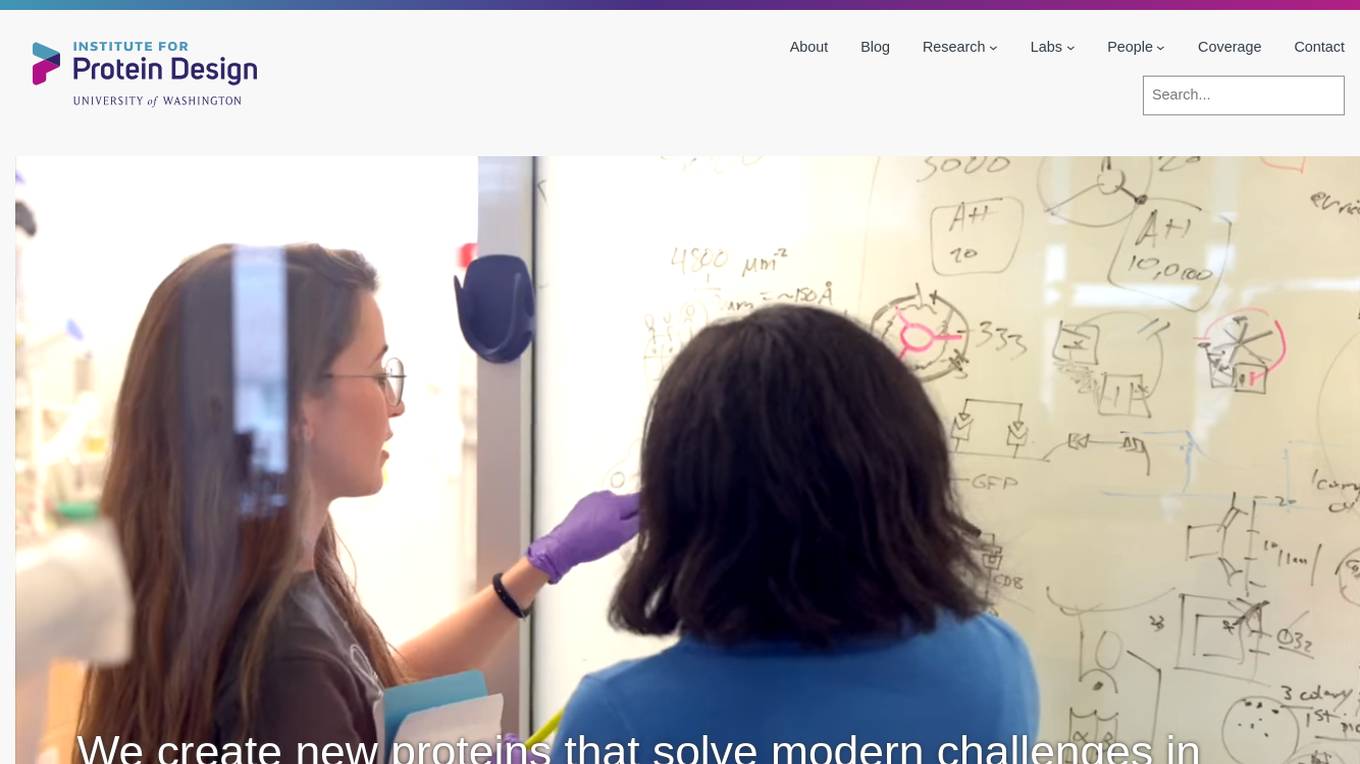
Institute for Protein Design
The Institute for Protein Design is a research institute at the University of Washington that uses computational design to create new proteins that solve modern challenges in medicine, technology, and sustainability. The institute's research focuses on developing new protein therapeutics, vaccines, drug delivery systems, biological devices, self-assembling nanomaterials, and bioactive peptides. The institute also has a strong commitment to responsible AI development and has developed a set of principles to guide its use of AI in research.
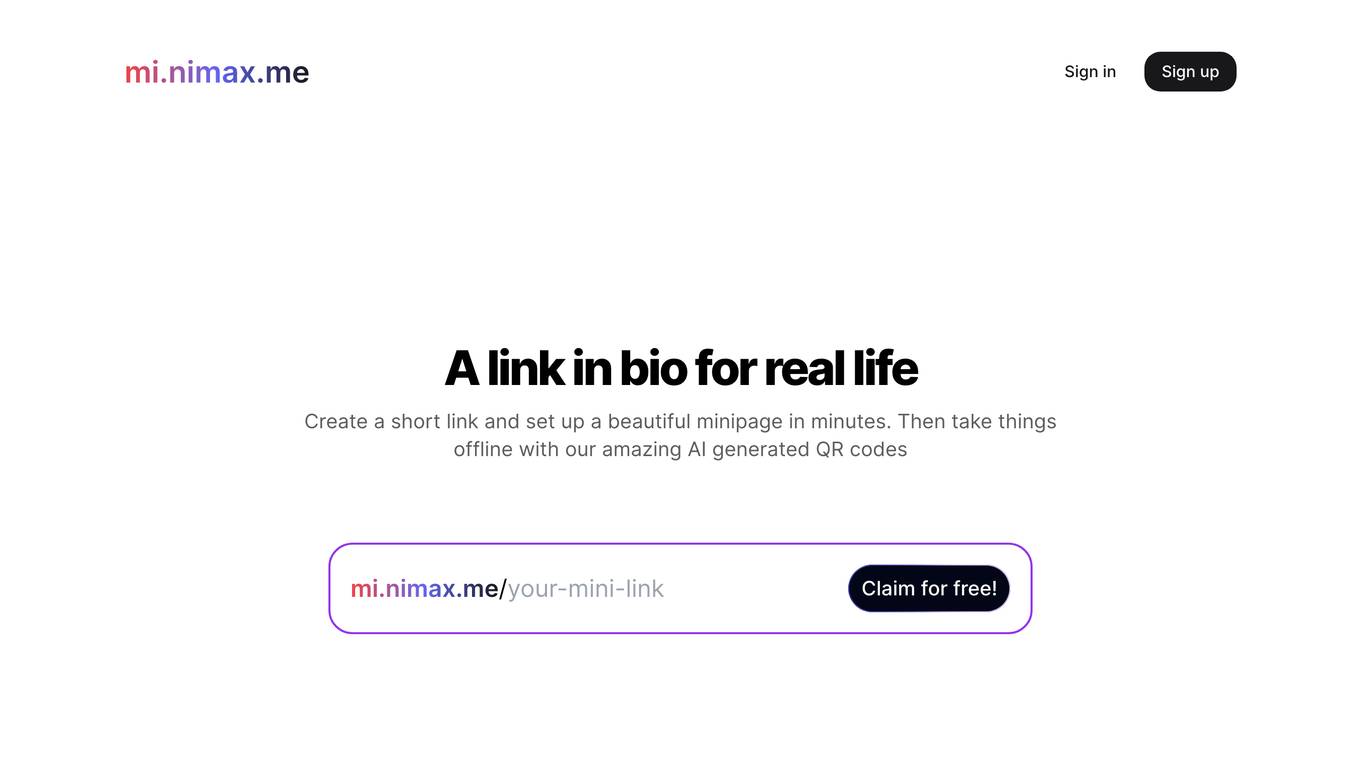
Mi.nimax.me
Mi.nimax.me is a website that allows users to create a short link and set up a beautiful minipage in minutes. The website also offers AI-generated QR codes that can be used to take things offline. With Mi.nimax.me, users can maximize their online presence with their Minipage and generate beautiful pages by listing their links. They can then arrange and resize the links until they are exactly how they want them.

LoveGenius
LoveGenius is an AI Dating Assistant tool that helps users improve their dating profiles and opening lines to turn matches into dates. By combining proven communication principles with AI technology, LoveGenius offers personalized feedback and advice to help users present their best selves in the online dating world. The tool analyzes users' conversations, provides specific feedback, and suggests tailored messages based on the match's profile, aiming to enhance engagement and increase response rates.

Pl@ntNet
Pl@ntNet is a citizen science project available as an application that helps you identify plants from your photos. It is a collaborative project that brings together scientists, naturalists, and citizens from all over the world to collect and share data on plant diversity. The app uses artificial intelligence to identify plants from photos, and the data collected is used to create a global database of plant diversity. Pl@ntNet is free to use and is available in over 20 languages.
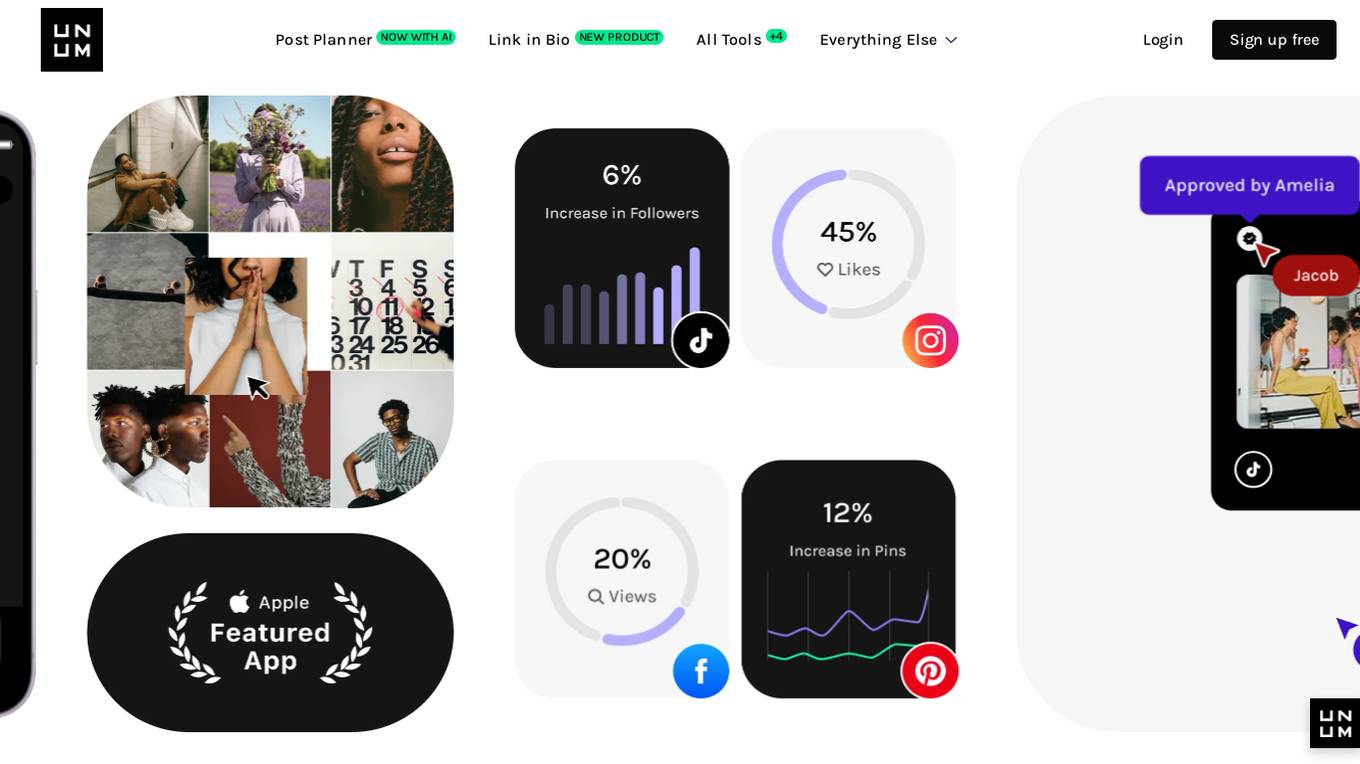
UNUM
UNUM is a comprehensive social media management tool designed to help users create, publish, analyze, and grow their social media channels. With features like auto-posting, AI captioning, hashtag generation, photo and video editing, and a media library, UNUM streamlines the social media workflow. It also offers insights, reports, and a social media calendar to help users track their performance and plan ahead. UNUM is trusted by over 20 million creators and teams worldwide, providing a centralized platform for managing multiple social media accounts and optimizing content strategy.
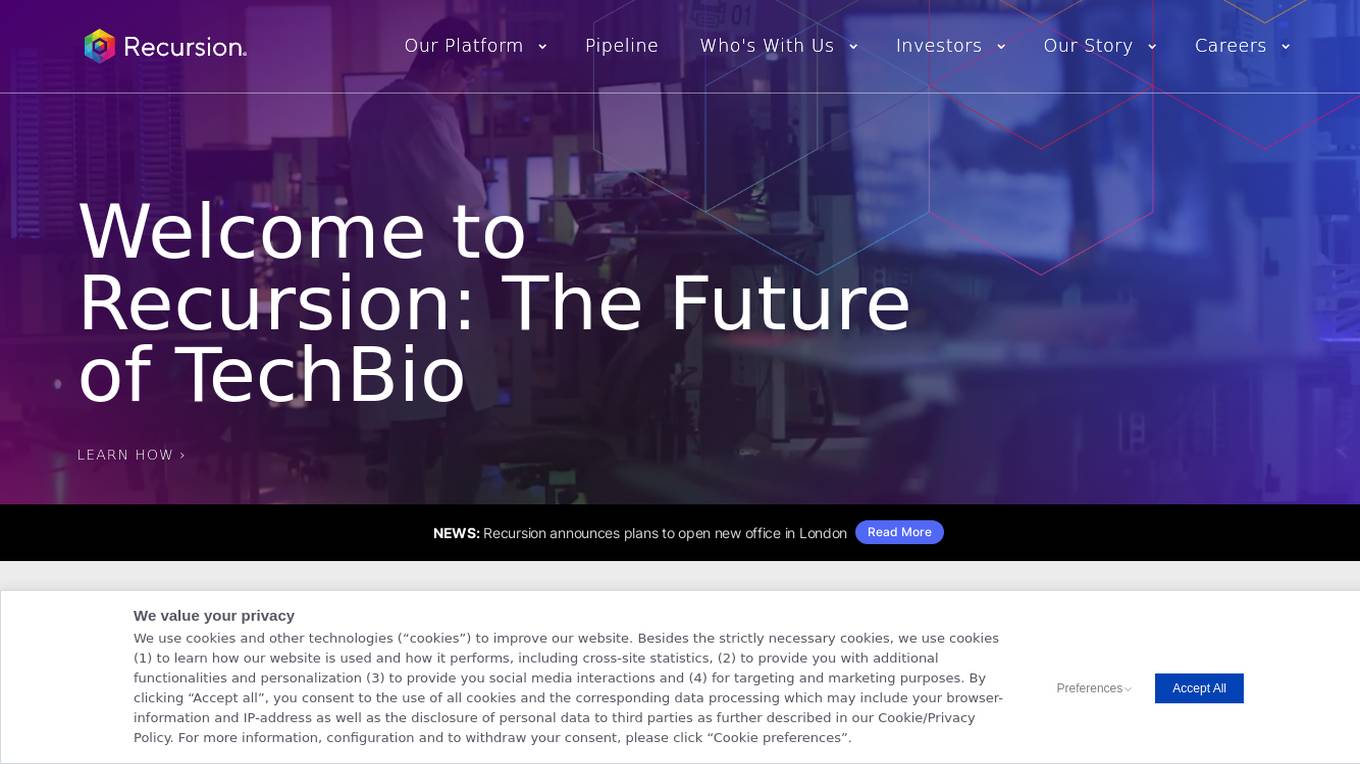
Recursion
Recursion is a techbio company that uses artificial intelligence to accelerate drug discovery. The company's platform combines hardware, software, and data to create a more efficient and effective drug discovery process. Recursion has a broad pipeline of drug candidates in development, and it has partnered with several leading pharmaceutical companies. The company is headquartered in Salt Lake City, Utah.
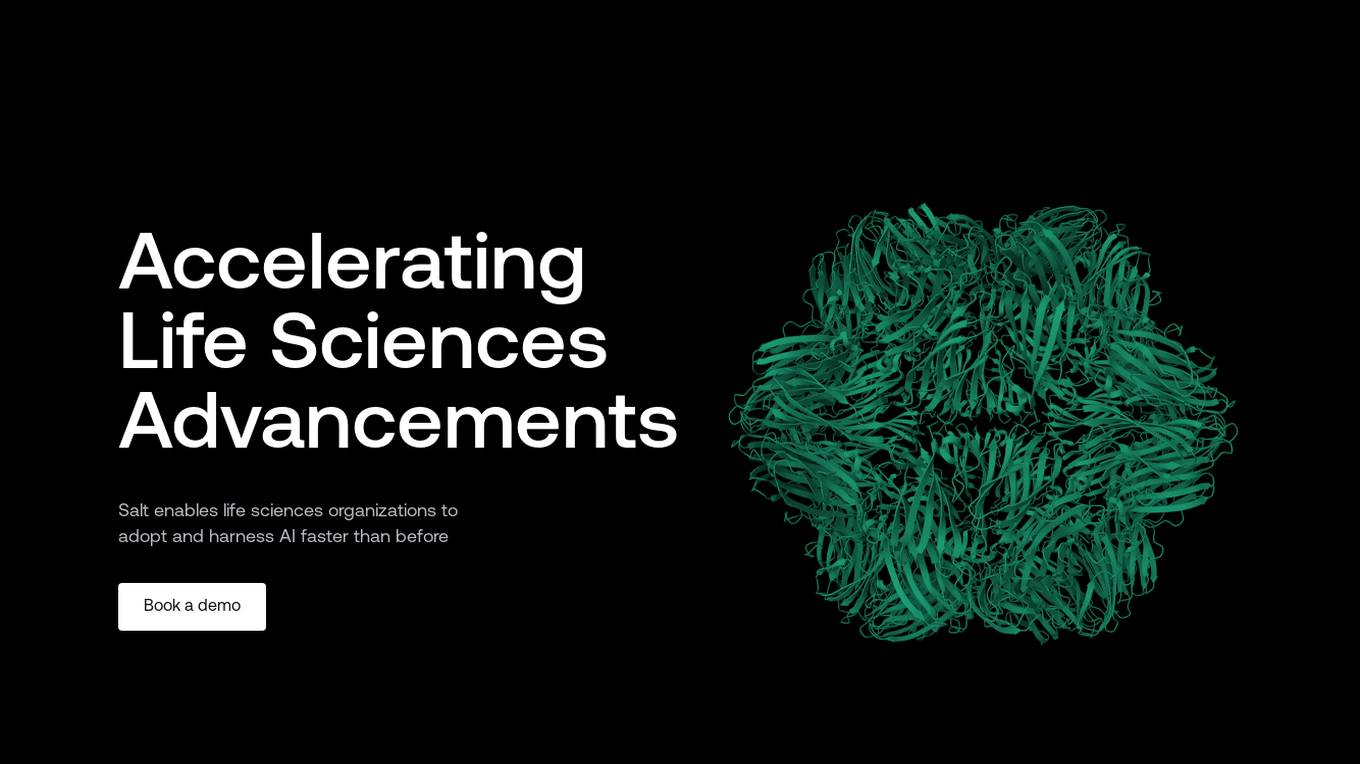
Salt AI
Salt AI is a development engine tailored for life sciences organizations, aiming to accelerate advancements in the field by enabling faster adoption and utilization of AI technologies. The platform offers reliable and reproducible AI processes, optimized for speed and efficiency, and promotes transparency and collaboration within workflows. With a focus on supporting best-in-class life sciences research models, Salt AI empowers users to enhance their understanding of biological processes through flexible and performant AI solutions.
0 - Open Source AI Tools
20 - OpenAI Gpts
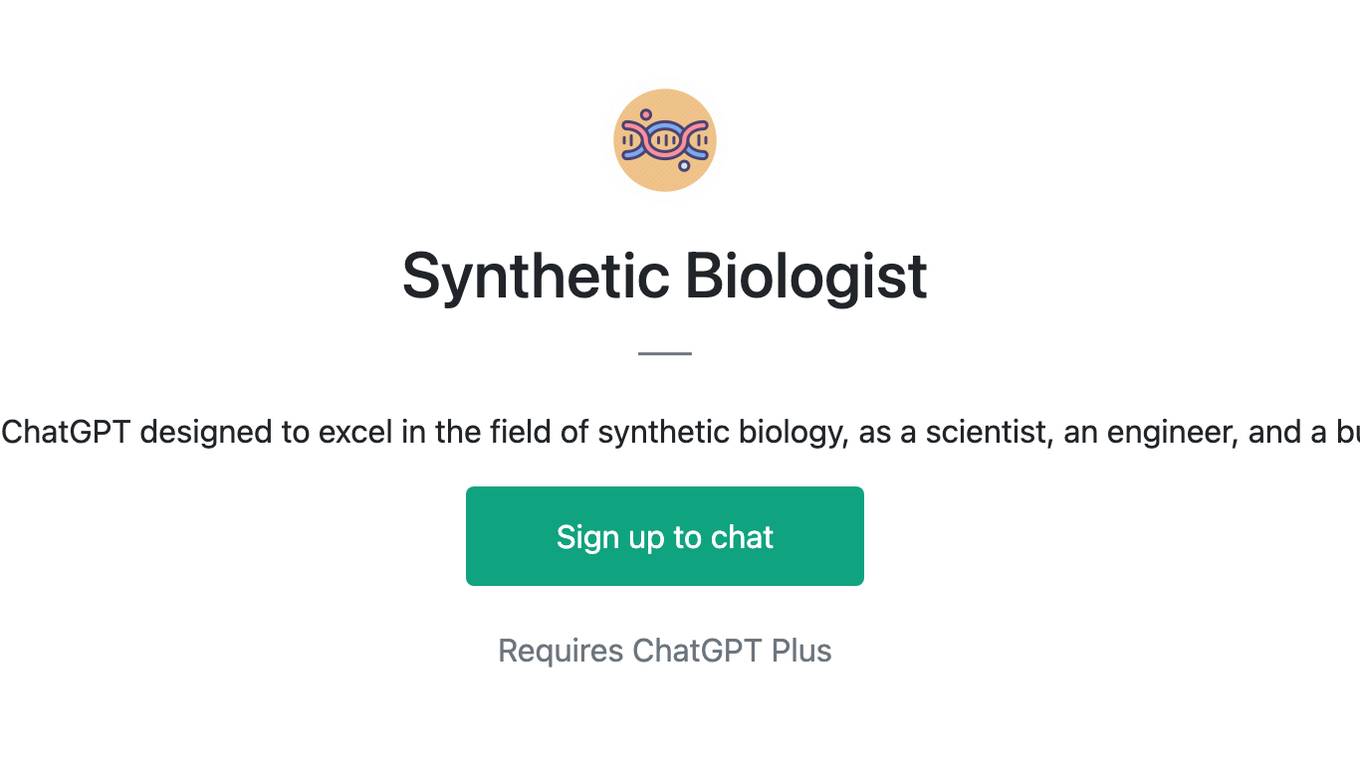
Synthetic Biologist
A customized ChatGPT designed to excel in the field of synthetic biology, as a scientist, an engineer, and a business man
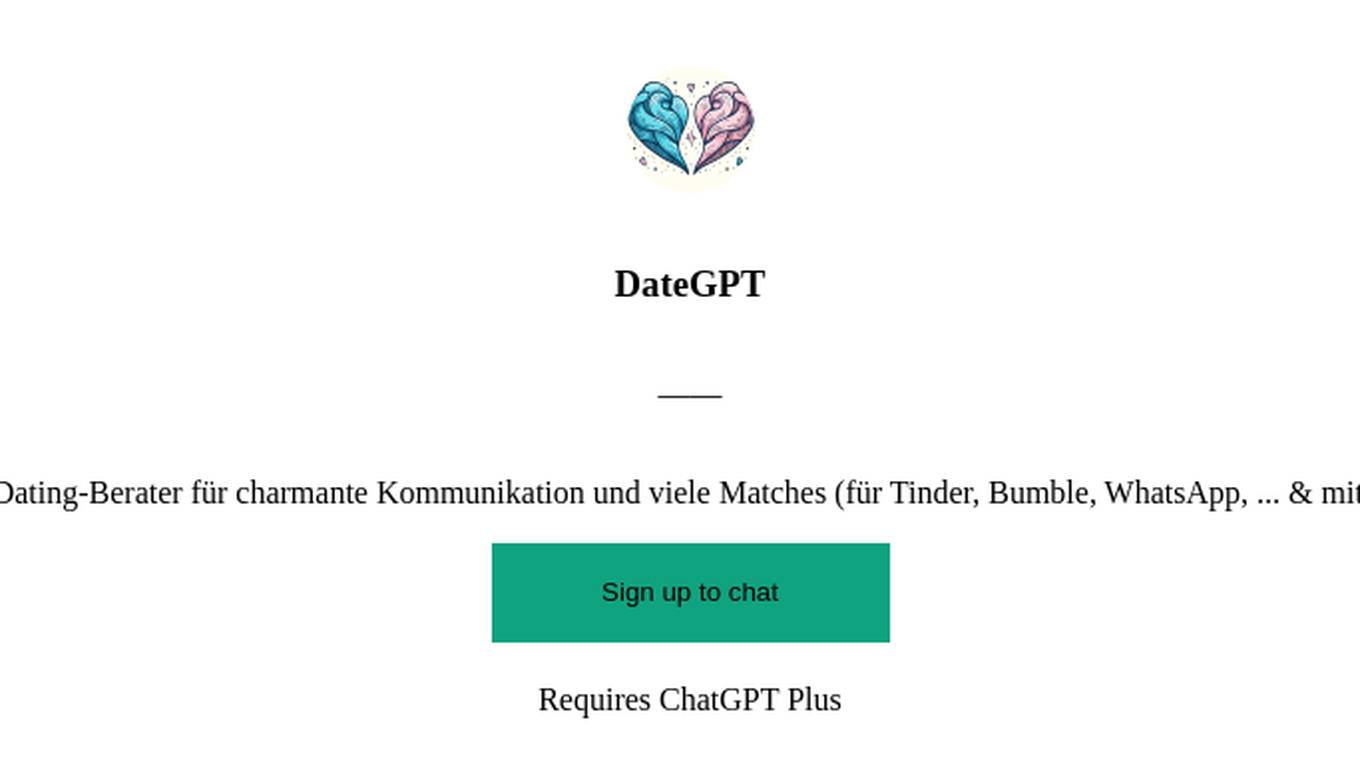
DateGPT
Dein KI-basierter Dating-Berater für charmante Kommunikation und viele Matches (für Tinder, Bumble, WhatsApp, ... & mit deinem Schreibstil)

Biomedical Engineering Expert
Your personal biomedical engineer. Create anything related to BME.
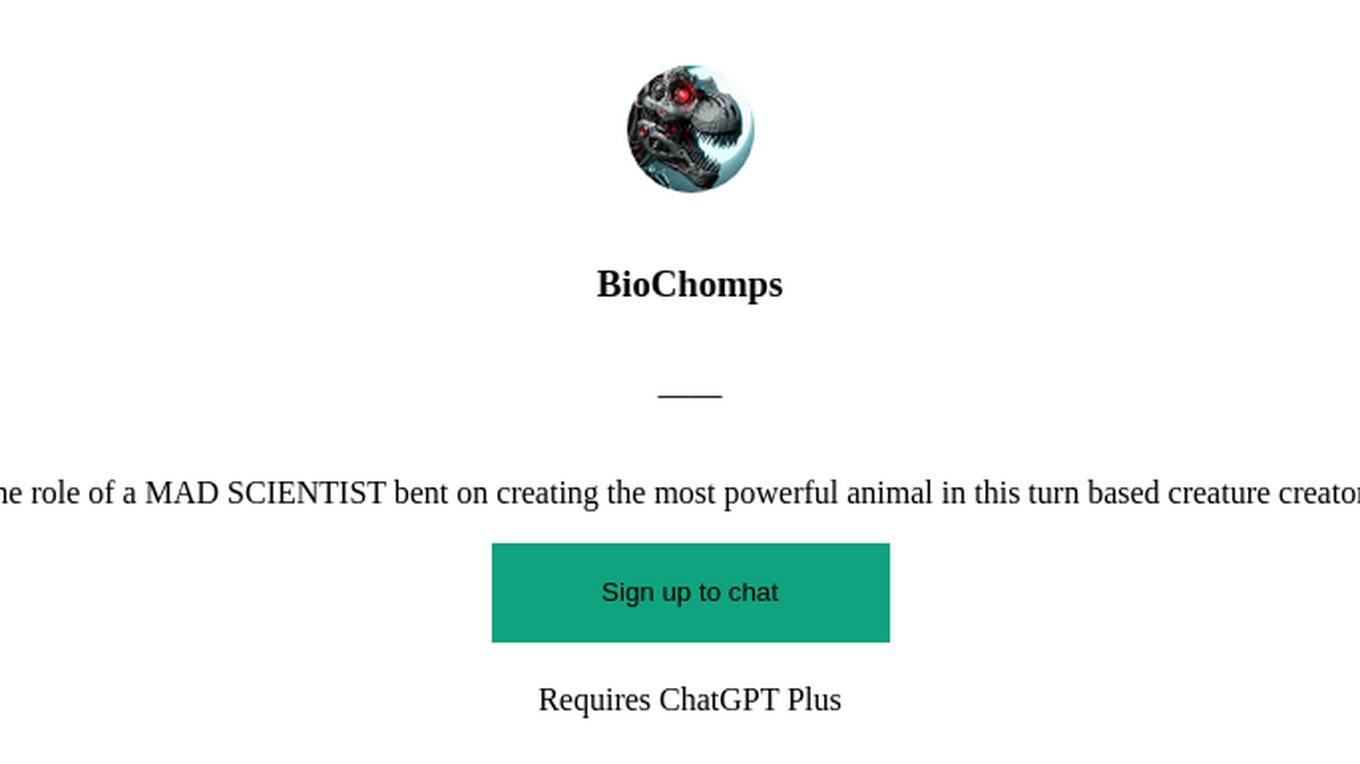
BioChomps
Assume the role of a MAD SCIENTIST bent on creating the most powerful animal in this turn based creature creator AI battler!
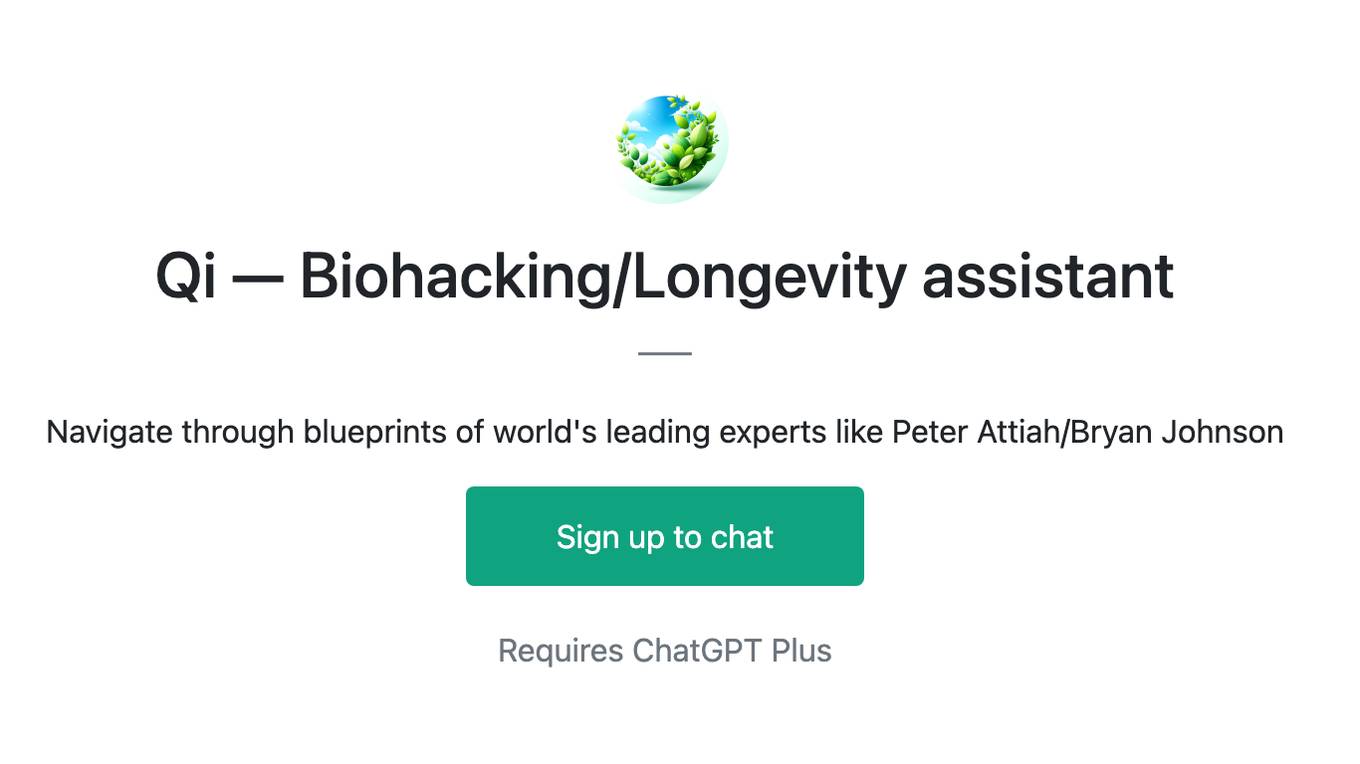
Qi — Biohacking/Longevity assistant
Navigate through blueprints of world's leading experts like Peter Attiah/Bryan Johnson
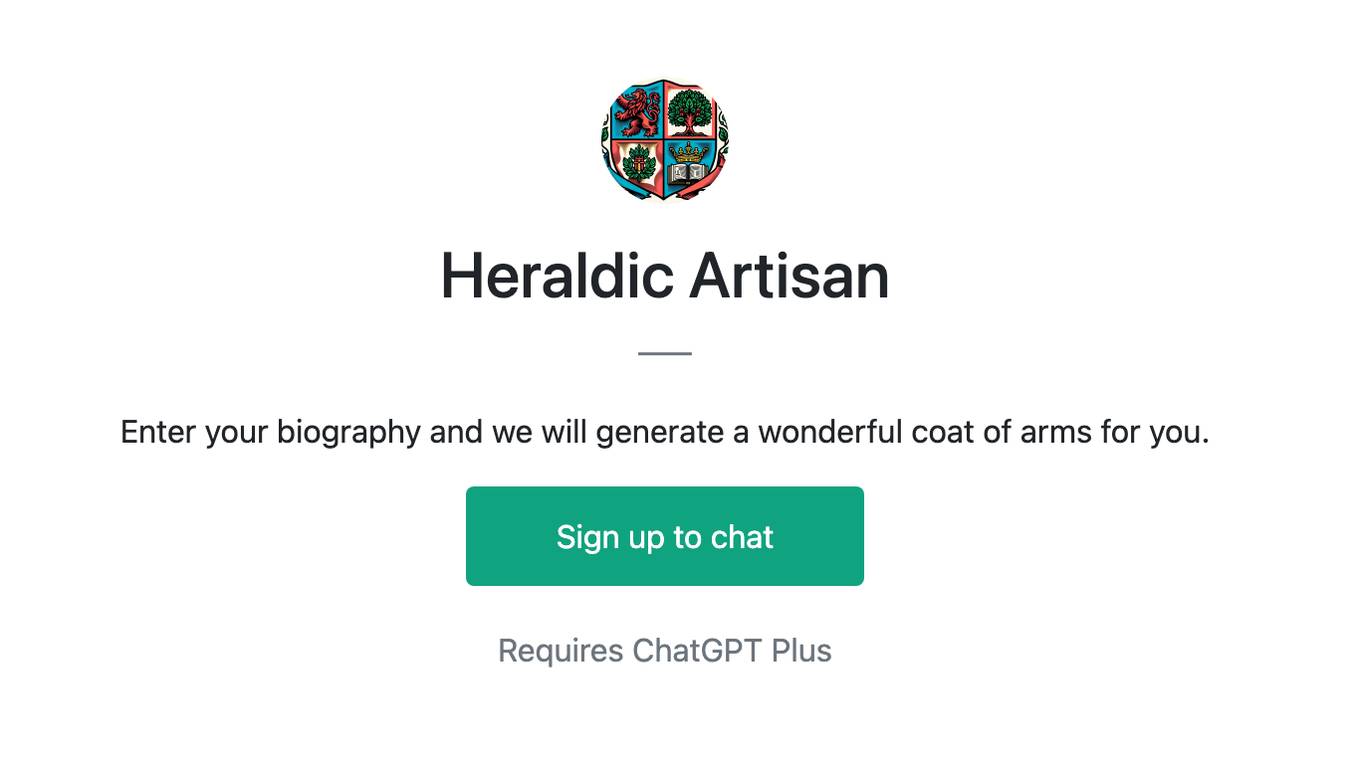
Heraldic Artisan
Enter your biography and we will generate a wonderful coat of arms for you.
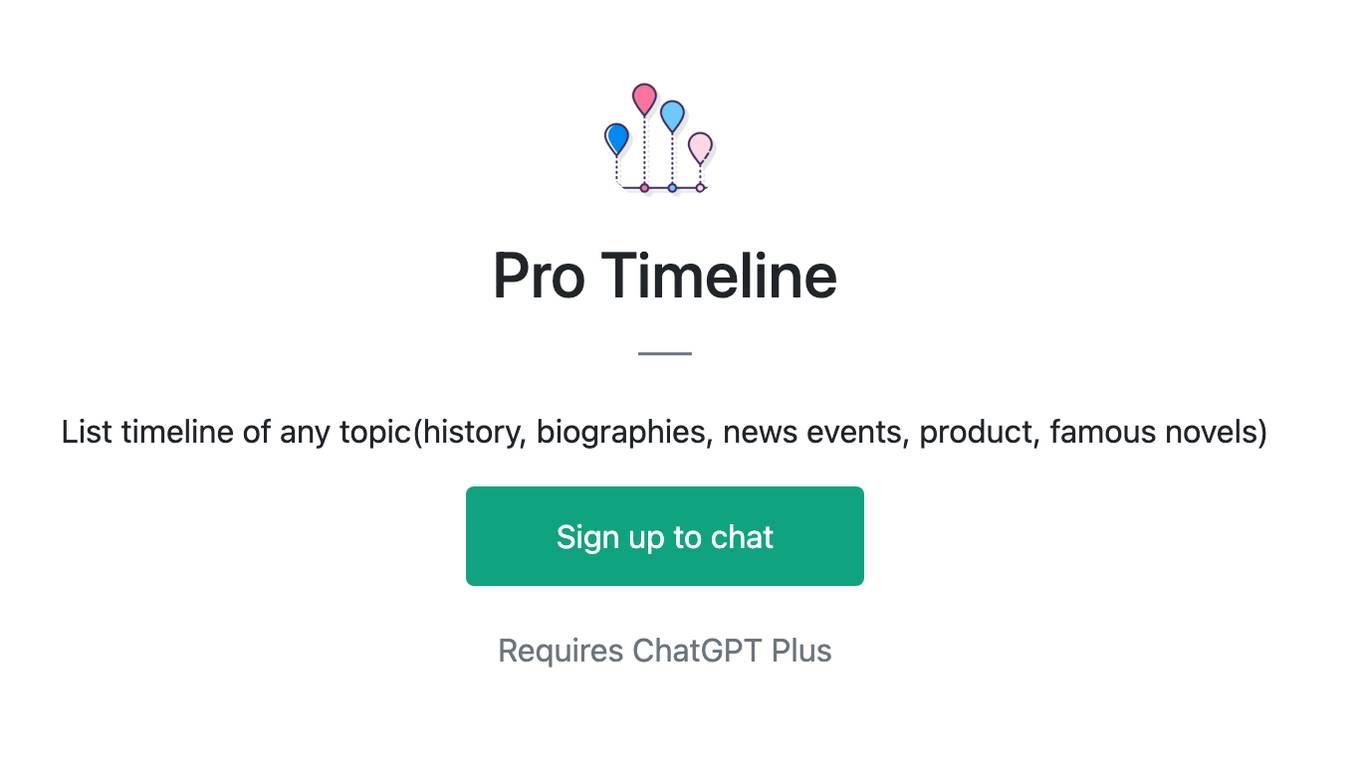
Pro Timeline
List timeline of any topic(history, biographies, news events, product, famous novels)
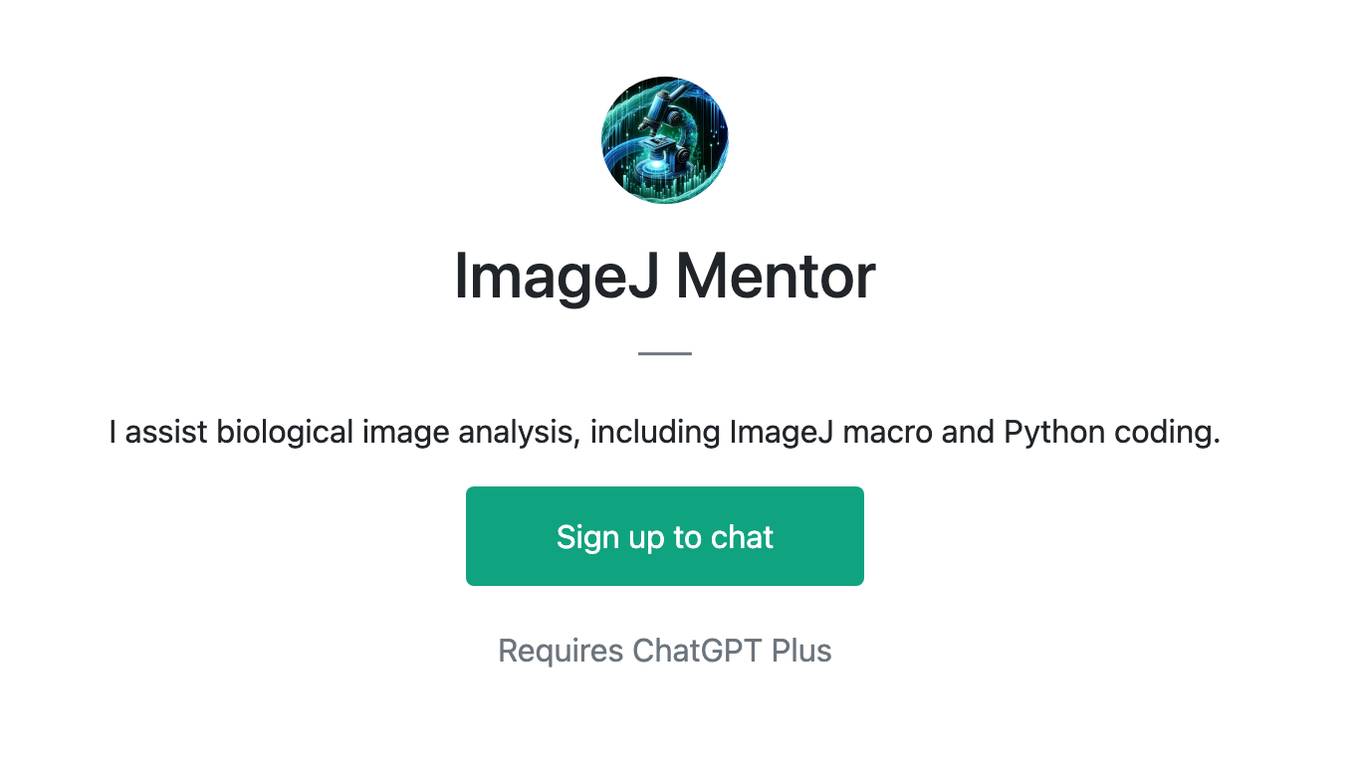
ImageJ Mentor
I assist biological image analysis, including ImageJ macro and Python coding.
![★彡[aesthetic]彡★ Screenshot](/screenshots_gpts/g-8gVydCK5o.jpg)
